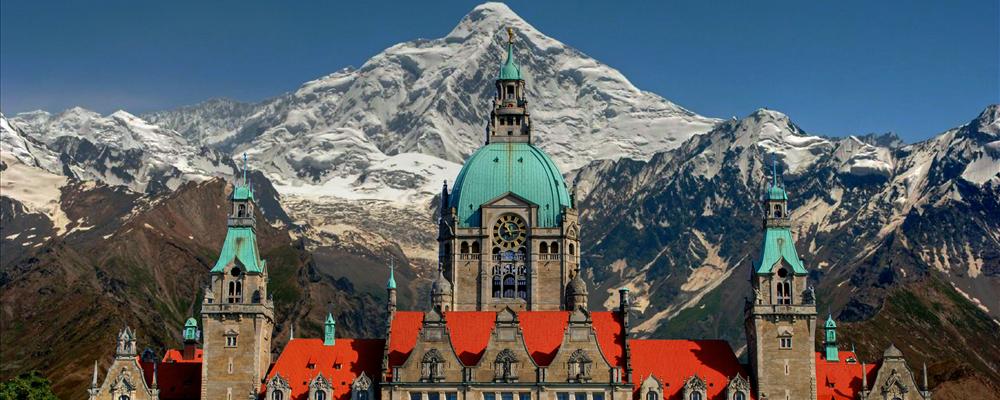
Germany
( 1 user review )Germany, (officially: the Federal Republic of Germany), (German: Bundesrepublik Deutschland) is the largest country in Central Europe. It is bordered to the north by Denmark, to the east by Poland and the Czech Republic, to the south by Austria and Switzerland, and to the west by France, Luxembourg, Belgium and the Netherlands. Germany is a federation of 16 states, similar in structure to the USA, each with a distinct and unique culture. Contrary to the general foreigner's conception Germany it not a very homogeneous nation and regionalism is alive and well making it a very diverse place for its size.
Understand
Being the largest Central European country in population, Germany has the largest economy in Europe and is also the world's biggest exporter nation. In contrast, its size is tiny compared with most of the other powerful nations in the world. Germany is a federalist country with a highly decentralized structure and has several large urban cities. Therefore, the capital Berlin is not as dominant over the rest of the nation as say London is in the United Kingdom or Paris in France. Nevertheless, it has been touted as one of the world's most fashionable big cities since the early 90's.
The undisputed financial capital of Germany is Frankfurt am Main and most likely all of continental Europe, (not to be confused with Frankfurt an der Oder on the Polish border). It features an unusual modern skyline in Central Europe with its many high-rise buildings, an ever growing airport and thus the city is sometimes referred to as "Mainhattan".
The historically decentralised structure lead to a regional stronghold of traditions. Germany's famous beer culture is centered around Southern Germany's biggest city (Munich), where beer is traditionally served in 1 liter mugs (but not in Kneipen (pubs) and Restaurants). Munich is also the site of the annual Oktoberfest , Europe's most visited festival and the world's largest fair.
Germany's south-western regions are known for their wine growing areas (e.g. Rheinhessen and Palatinate) and Bad Duerkheim on the 'German wine route' organises the biggest wine festival worldwide with over 600,000 visitors annually.
It has been 20 years since German Reunification. In its early stages the idea to reintegrate the former German Democratic Republic (GDR) or East Germany with the West met significant opposition in West Germany due to its outrageous price tag. However, today most Germans as well as their neighbors support the idea of a reunified Germany and while the eastern regions still suffer from higher unemployment and a brain-drain the overall event is seen as a success. The 3rd of October is celebrated as the day of "German National Unity" or Reunification Day.
Cars are a symbol of national pride, and manufacturers such as Audi, BMW, Mercedes, Porsche and Volkswagen (VW) are famous internationally for their quality, safety and style. This quality is matched by Germany's excellent network of roadways including the world famous Autobahn network, which has many sections without speed limits and attracts lots of speed hungry drivers. Amazingly for its size Germany is home to the third largest freeway/motorway network in the world! Germany also features an extensive network of high speed trains - the InterCityExpress (ICE) and is an overall global leader in precision engineered goods with a reputation for quality and high price tag to match!
Germany was the host of the FIFA World Cup 2006.
History
- From the Holy Roman Empire to Imperial Germany
The roots of German history and culture date back to the Germanic tribes and after that to the Holy Roman Empire of the German Nation. Since the early middle ages Germany started to split into hundreds of small states. It was the Napoleonic wars that started the process of unification, which ended in 1871, when a large number of previously independent German kingdoms united under Prussian leadership to form the German Empire (Deutsches Kaiserreich). This incarnation of Germany reached eastward all the way to modern day Klaipeda (Memel) in Lithuania and also encompassed today´s regions of Alsace-Lorraine (France), a small portion of eastern Belgium (Eupen-Malmédy), a small border region in southern Denmark and over 40% of contemporary Poland. The empire ended in 1918 when Emperor (Kaiser) Wilhelm II was forced to abdicate the throne after Germany's defeat in World War I (1914-1918), and was followed by the short-lived ill fated Weimar Republic, which tried in vain to completely establish a liberal, democratic regime. Because the young republic was plagued with massive economic problems (such as hyperinflation) and disgrace for a humiliating defeat in the First World War, strong anti-democratic forces took advantage of the inherent organizational problems of the Weimar Constitution and the Nazis were able to seize power.
- Hitler and the Nazis
The year 1933 witnessed the rise to power of the nationalistic and racist National Socialist German Workers' (Nazi) Party and its Führer, Adolf Hitler. Under the Nazi dictatorship, democratic institutions were dismantled and a police state was installed. Jews, Slavs, Gypsies, handicapped people, socialists, communists, unionists and other groups not fitting into the Nazi's vision of a Greater Germany faced persecution, and ultimately murder in concentration camps. Europe's Jews and Gypsies were single-handedly marked for total extermination. Hitler's militaristic ambitions to create a new German Empire in Central and Eastern Europe led to war, successively, with Poland, France, Great Britain, the Soviet Union and the United States - despite initial dazzling successes, Germany was unable to withstand the attacks of the Allies and Soviets on two fronts in addition to a smaller third front to the south of the alps in Italy.
It was "Stunde Null" or zero hour. Germany had destroyed itself and much of Europe and only had itself to blame. By April of 1945 Germany was in ruins with most major cities bombed to the ground. The reputation of Germany as an intellectual land of freedom and high culture (Land der Dichter und Denker) had been decimated and tarnished for decades to come. At the end of the war, by losing 25% of its territory, east of the newly Allied imposed Oder-Neisse frontier with Poland the occupied country was faced with a major refugee crisis with well over 10 million Germans flooding westward into what remained of Germany. Following the end of the war at the Potsdam conference the Allies decided the future of Germany's borders and taking a Soviet lead stripped her of the traditional eastern Prussian lands. Therefore, German provinces east of the rivers Oder and Neisse like Silesia and Pomerania were entirely cleared of its original population by the Soviets and Polish - most of it an area where there had not been any sizable Polish or even Russian minorities at all. Even more refugees came with the massive numbers of ethnic Germans expelled from their ancient eastern European homelands in Hungary, Czechoslovakia, Romania and Yugoslavia.
- Post WWII
After the devastating defeat in World War II (1939-1945), Germany was divided into four sectors, controlled by the French, British, US and Soviet forces. United Kingdom and the US decided to merge their sectors, followed by the French. Silesia, Pomerania and the southern part of East Prussia became Polish territory according to the international agreement of the allies. With the beginning of the Cold War, the remaining central and western parts of the country were divided into an eastern part under Soviet control, and a western part which was controlled by the Western Allies. The western part was transformed into the Federal Republic of Germany, with Bonn as the capital, while the Soviet-controlled zone became the communist German Democratic Republic (GDR). Berlin had a special status as it was divided among the Soviets and the West, with the eastern part featuring as the capital of the GDR. The western sectors of Berlin were de facto an exclave of the Federal Republic but formally governed by the Western Allies. On August 13, 1961 the Berlin Wall was erected as part of a heavily guarded frontier system and hundreds of Germans trying to escape from the communist regime were killed here in the following years.
In the late 1960's a desire to confront the Nazi past came into being. Students' protests beginning in 1968 successfully clamoured for a new Germany. The society became much more liberal, and the totalitarian past was dealt with more unconcealed than ever before since the foundation of the Federal Republic in 1949. Post-war education had helped put Germany among countries in Europe with the least number of people subscribing to Nazi ideas. Willy Brandt became chancellor in 1969. He made an important contribution towards reconciliation between Germany and the communist states.
Germany was reunited in 1990, a year after the fall of the GDR's communist regime. The re-established eastern states joined the Federal Republic on the 3rd October 1990, a day which is since celebrated as the German National Holiday (Tag der Deutschen Einheit). Together with the reunification, the last post-war limitations to Germany's sovereignty were removed. The German parliament, the Bundestag, after controversial debate, finally agreed to comply with the eastern border of the former GDR, the so-called "Oder-Neisse-Line" thus shaping Germany the way it can be found on Europe's map today.
Politics
Germany is a federal republic, consisting of 16 states ('Bundesländer'). The federal parliament ('Bundestag') is elected every four years in a fairly complicated system, involving direct and proportional representation. A party will be represented in Parliament if it can gather at least 5% of all votes or at least 3 directly won seats. The parliament elects the Chancellor ('Bundeskanzler', currently Angela Merkel) on its first session, who will serve as the head of government. The 'Bundesländer' are represented at the federal level through the Federal Council ('Bundesrat'). Many federal laws have to be approved by the council. This can lead to a situation where Council and Parliament are blocking each other if they are dominated by different parties.
The formal head of state is the President ('Bundespräsident', currently Horst Köhler), who gets barely involved into day to day politics and has mainly ceremonial and representative duties. Nevertheless every law passed by the parliament has to be signed by the president. He can also suspend the parliament, but all executive power lies with the chancellor. The President of Germany is elected every 5 years by a specially convened national assembly, and is restricted to serving a maximum of two five year terms.
The two most powerful parties are the Christian Democratic Party ('Christlich Demokratische Union (CDU)') and the Social Democratic Party ('Sozialdemokratische Partei Deutschlands (SPD)'). Due to the proportional voting system, smaller parties can also be represented in parliament. Medium-sized parties of relative importance are the Christian Social Party ('Christlich Soziale Union (CSU)', most important party within Bavaria, a kind of CDU subsidiary), Liberals ('Freie Demokratische Partei (FDP)'), the Green party ('Bündnis 90/Die Grünen') and since summer 2005, the new Left Party ('Die Linke', most important party in the East), founded from the "PDS" and the Alternative for Work and Social justice (WASG). There have been some attempts by extreme right-wing parties (NPD - National Democratic Party / REP - Republicans) to get into parliament, but so far they have failed the 5% requirement (except in some State parliaments, currently Saxony and in Mecklenburg-Western Pomerania).
History
- From the Holy Roman Empire to Imperial Germany
The roots of German history and culture date back to the Germanic tribes and after that to the Holy Roman Empire of the German Nation. Since the early middle ages Germany started to split into hundreds of small states. It was the Napoleonic wars that started the process of unification, which ended in 1871, when a large number of previously independent German kingdoms united under Prussian leadership to form the German Empire (Deutsches Kaiserreich). This incarnation of Germany reached eastward all the way to modern day Klaipeda (Memel) in Lithuania and also encompassed today´s regions of Alsace-Lorraine (France), a small portion of eastern Belgium (Eupen-Malmédy), a small border region in southern Denmark and over 40% of contemporary Poland. The empire ended in 1918 when Emperor (Kaiser) Wilhelm II was forced to abdicate the throne after Germany's defeat in World War I (1914-1918), and was followed by the short-lived ill fated Weimar Republic, which tried in vain to completely establish a liberal, democratic regime. Because the young republic was plagued with massive economic problems (such as hyperinflation) and disgrace for a humiliating defeat in the First World War, strong anti-democratic forces took advantage of the inherent organizational problems of the Weimar Constitution and the Nazis were able to seize power.
- Hitler and the Nazis
The year 1933 witnessed the rise to power of the nationalistic and racist National Socialist German Workers' (Nazi) Party and its Führer, Adolf Hitler. Under the Nazi dictatorship, democratic institutions were dismantled and a police state was installed. Jews, Slavs, Gypsies, handicapped people, socialists, communists, unionists and other groups not fitting into the Nazi's vision of a Greater Germany faced persecution, and ultimately murder in concentration camps. Europe's Jews and Gypsies were single-handedly marked for total extermination. Hitler's militaristic ambitions to create a new German Empire in Central and Eastern Europe led to war, successively, with Poland, France, Great Britain, the Soviet Union and the United States - despite initial dazzling successes, Germany was unable to withstand the attacks of the Allies and Soviets on two fronts in addition to a smaller third front to the south of the alps in Italy.
It was "Stunde Null" or zero hour. Germany had destroyed itself and much of Europe and only had itself to blame. By April of 1945 Germany was in ruins with most major cities bombed to the ground. The reputation of Germany as an intellectual land of freedom and high culture (Land der Dichter und Denker) had been decimated and tarnished for decades to come. At the end of the war, by losing 25% of its territory, east of the newly Allied imposed Oder-Neisse frontier with Poland the occupied country was faced with a major refugee crisis with well over 10 million Germans flooding westward into what remained of Germany. Following the end of the war at the Potsdam conference the Allies decided the future of Germany's borders and taking a Soviet lead stripped her of the traditional eastern Prussian lands. Therefore, German provinces east of the rivers Oder and Neisse like Silesia and Pomerania were entirely cleared of its original population by the Soviets and Polish - most of it an area where there had not been any sizable Polish or even Russian minorities at all. Even more refugees came with the massive numbers of ethnic Germans expelled from their ancient eastern European homelands in Hungary, Czechoslovakia, Romania and Yugoslavia.
- Post WWII
After the devastating defeat in World War II (1939-1945), Germany was divided into four sectors, controlled by the French, British, US and Soviet forces. United Kingdom and the US decided to merge their sectors, followed by the French. Silesia, Pomerania and the southern part of East Prussia became Polish territory according to the international agreement of the allies. With the beginning of the Cold War, the remaining central and western parts of the country were divided into an eastern part under Soviet control, and a western part which was controlled by the Western Allies. The western part was transformed into the Federal Republic of Germany, with Bonn as the capital, while the Soviet-controlled zone became the communist German Democratic Republic (GDR). Berlin had a special status as it was divided among the Soviets and the West, with the eastern part featuring as the capital of the GDR. The western sectors of Berlin were de facto an exclave of the Federal Republic but formally governed by the Western Allies. On August 13, 1961 the Berlin Wall was erected as part of a heavily guarded frontier system and hundreds of Germans trying to escape from the communist regime were killed here in the following years.
In the late 1960's a desire to confront the Nazi past came into being. Students' protests beginning in 1968 successfully clamoured for a new Germany. The society became much more liberal, and the totalitarian past was dealt with more unconcealed than ever before since the foundation of the Federal Republic in 1949. Post-war education had helped put Germany among countries in Europe with the least number of people subscribing to Nazi ideas. Willy Brandt became chancellor in 1969. He made an important contribution towards reconciliation between Germany and the communist states.
Germany was reunited in 1990, a year after the fall of the GDR's communist regime. The re-established eastern states joined the Federal Republic on the 3rd October 1990, a day which is since celebrated as the German National Holiday (Tag der Deutschen Einheit). Together with the reunification, the last post-war limitations to Germany's sovereignty were removed. The German parliament, the Bundestag, after controversial debate, finally agreed to comply with the eastern border of the former GDR, the so-called "Oder-Neisse-Line" thus shaping Germany the way it can be found on Europe's map today.
Regions
Germany is a federal republic consisting of 16 states (called "Bundesländer" or, shortened to, "Länder" in German). Three of the Bundesländer are actually city-states: Berlin, Bremen, and Hamburg. The states can be roughly grouped by geography as listed below.
- Northern Germany - Wind-swept hills and the popular vacation destinations of the North Sea and Baltic Sea coasts.
- Western Germany - Wine country and modern cities sharply cut by the breathtaking Rhine Valley and Moselle valley.
- Central Germany - The green heart of Germany, with some of the most important historical and financial cities and the ancient Thurigian Forest.
- Eastern Germany - highlighted by the eccentric and historic capital Berlin, and rebuilt historic Dresden, the Florence of the Elbe.
- Southern Germany - Black Forest, Alps, and Oktoberfest. The Germany of lederhosen and postcards.
Cities
Germany has numerous cities of interest to tourists; these are nine of the most famous travel destinations.
-
Berlin — the reunified and reinvigorated capital of Germany; known for its division during the Cold War — and the Berlin Wall. Today its a metropolis of diversity with elegant clubs, galleries and traditional restaurants. It is also a haven for shoppers.
-
Hamburg — Germany's second-largest city, famous for its harbour as well as its liberal and tolerant culture. Don't miss the Reeperbahn with its night clubs and casinos. Hamburg is also popular for its many musicals.
-
Munich (München) — Bavaria's beautiful capital city and Southern Germany's primary city. The third largest city in Germany, Munich is the site of the famous Oktoberfest and is the gateway to the Alps.
-
Cologne (Köln) — Germany's fourth-largest city. Cologne was founded by the Romans and is 2000 years old with its huge cathedral, Romanesque churches, and archaeological sites. Cologne also well known for its carnival and its Christopher-Street-Day parade. Don't forget to try the local cuisine and of course the local beer, called "Kölsch".
-
Dresden - Once called 'Florence on the Elbe', and world-famous for its Frauenkirche and historic center which was destroyed during the war, the city offers more than what the average traveller can expect: Great festivals, all kinds of cultural entertainment, vibrant night life, and surrounded by beautiful natural vistas. Dresden hosts the Staatlichen Kunstsammlungen Dresden (Dresden State Art Collections) which is one of the world's most impressive museums and collections. The art collections consist of eleven museums, of which the Gemäldegalerie Alte Meister and the Grünes Gewölbe are the most well-known.
-
Dusseldorf (Düsseldorf, Duesseldorf) — Germany's capital of fashion, the capital city of North Rhine-Westphalia offers a wide scale of fascinating new architecture. Right along the shores of river Rhine, the "Altstadt" and the "Medienhafen" are among the best places in Germany to enjoy a vibrant nightlife. Being one of the country's wealthiest cities, the atmosphere is very pleasant. Germans call it "the only metropolis ending with -dorf (German for village)".
-
Frankfurt — Germany's leading financial center, transportation hub, seat of the European Central Bank (ECB), international trade fair center (Book Fair, Motor Show), hub of multicultural activity (30% Immigrants), and site of numerous world-class museums and theaters. It is also Germany's only city with enough skyscrapers to have a skyline.
-
Bremen - One of the most important cities in northern Germany, its old town will be of interest to travellers who want a slice of history.
-
Nuremberg (Nürnberg) — Second largest city in Bavaria, after WWII over 90% of the old-town was destroyed. Today it has been reconstructed, including the Gothic Kaiserburg Castle (Emperor's Castle of the Holy Roman Empire of German Nation). You can also visit the infamous Nazi party rally grounds, the Documentation Centre and Courtroom 600 - venue of the Nuremberg Trials.
Other destinations
-
The Baltic Sea Coast (Ostseeküste) and North Sea Coast (Nordseeküste), with picturesque islands such as Rügen, the North and East (Ostfriesische Inseln) Frisian Islands.
-
The Rhine Valley (Mittelrhein) between Bonn and Bingen and the Upper Rhine Valley (Oberrheinische Tiefebene) between Bingen and Basel, Switzerland. Home to the Ruhr area (Ruhrgebiet), part of the Rhine River is a UNESCO Heritage site, and the valley is famous for its wines.
-
Franconian Switzerland (Fränkische Schweiz). One of the oldest travel destinations in Germany, it was called by Romantic artists who said its landscape was that of Switzerland's.
-
Black Forest (Schwarzwald) A region with wide peaks, paranomic views , it is a haven for tourists and hikers.
-
Lake Constance (Bodensee). Occupying an extremely beautiful corner of Central Europe, it boasts water sports and beautiful towns to be seen by the visitor.
-
The Bavarian Alps (Bayrische Alpen), home to the world famous Neuschwanstein castle, and Germany's best skiing and snowboarding resorts.
-
Other smaller but notable, destinations in Germany include the Ore Mountains (Erzgebirge), Bavarian Forest (Bayerischer Wald), the Harz Mountains, Spreewald and the ancient city of Heidelberg.
-
The Castle Road (Burgenstraße) is a theme route over 1000 km in length in southern Germany (in Bavaria and Baden-Württemberg) and a small portion in the Czech Republic, between Mannheim and Prague. It passes by many historical castles.
Getting there
Another notable exception regards authorized members of the U.S. military, who need to possess only a copy of their duty orders and their ID card to be authorized entry. The passport requirement, though, applies to spouses and dependents of military personnel, and they must obtain a stamp in their passports to show that they are sponsored by a person in Germany under the Status of Forces Agreement.
There are no land border controls, making travel between Germany and other Schengen states easier with the accession of Switzerland to the Schengen area in 2008.
Some persons eligible for visa-free entry, namely those from Australia, Canada, Israel, Japan, New Zealand, South Korea, and the United States of America are also eligible to obtain a residence permit, or Aufenthaltstitel (authorizing a stay of more than 90 days and work permission), upon arrival in Germany, but before the end of the initial 90-day period. Honduran, Monegasque, and Sanmarinese nationals can also obtain such a permit, but only if they will not work on the residence permit.
There are a number of ways to get into Germany. From neighboring European countries, a drive with the car or a train ride are feasible; visitors from further away will probably be using air travel.
By plane
The most important airports are Frankfurt (IATA : FRA), Munich (IATA : MUC) and Düsseldorf (IATA : DUS). Berlin Schönefield Airport (IATA : SXF) and Tegel Airport (IATA : TXL), Cologne (IATA : CGN) and Hamburg (IATA : HAM) have some international flights as well.
Frankfurt is Germany's main hub and one of Europe's four major hubs, and the destination of most intercontinental flights. Munich is a secondary hub. Travellers can easily fly in from most places of the world and then connect with Germany's biggest and most respected airline Lufthansa which is a member of the Star Alliance. Germany's second largest airline is Air Berlin .
Some German airports are connected to the InterCityExpress and other rail lines, as are most international airports (except Berlin-Tegel Airport). The others all feature some sort of connection to the nearest rail station as well as public transport to the central station of the respective cities. Passengers travelling from Frankfurt Airport have the option to check in their luggage in Cologne or Stuttgart train stations and connect to the airport by ICE.
Budget Air Travel and minor airlines
There are budget flights to almost every city in Europe from Germany. If you are seeking a budget flight, you should first check with the nearest airport. Examples of budget airline hubs are Berlin Schönefeld and Dortmund for easyJet . Germanwings and Tuifly (formerly Hapag-Lloyd-Express and HapagFly), Air Berlin and WizzAir offer budget flights from many assorted airports across Germany and Europe. Condor , a major charter airline, may also offer budget flights to/from main tourist destinations throughout the world. Germania , Intersky and OLT have a limited number of international destinations. Ryanair flies from London to Berlin Schoenefeld, Altenburg (Leipzig), Lübeck (near to Hamburg), Weeze (near Duesseldorf) and from some other European destinations to Frankfurt/Hahn (Attention: Hahn is about 120km from Frankfurt without a railway station nearby!). Flying can be the cheapest way to get to Germany, especially if the flights are booked well in advance. A sample airfare on AirBerlin from Münster/Osnabrück to Vienna, Austria is €29 one-way including all taxes, only if booked far in advance.
Before booking a budget flight, compare carefully as their destinations are often a bit off the track and after adding all the fees, taxes, aditional bus tickets to get to their airports, you might end up at even higher prices than you would pay for a normal ticket with Luftansa etc..
By train
Regular train services connect Germany with all neighbouring countries. Almost all neighbouring countries (especially Switzerland, Poland, Denmark, Czech Republic and Austria) and even some non-neighbouring countries (e. g. Italy) are quite well connected with "EuroCity" trains. They are a little bit slower than the European high speed trains but reach nevertheless up to 200 km/h. They are a worthwhile way to travel--not only for budget travellers (although budget airlines might be cheaper) or landscape viewers (especially the Rhine valley lines).
There are also several European high speed trains to cross into or get out of Germany:
-
The Thalys brings you from Cologne (Köln) to Paris in approximately four hours and to Brussels in about two hours.
-
The ICE brings you at 330 km/h top speed from Frankfurt (3h 15), Cologne (2h 30) or Düsseldorf (2h 15) to Amsterdam. The train journey from Frankfurt to Paris using the ICE will take about four hours; going from Hamburg to Paris can take eight and a half hours. There is also an ICE line from Frankfurt to Brussels via Cologne.
-
Between Stuttgart and Milan (via Zurich) the Cisalpino offers several connections and is at the moment the only direct trans alpine train connection.
Standard rail fares are quite high and in 2005 Deutsche Bahn introduced discount return tickets. You must buy them three or seven days in advance (e. g. online and print your ticket at home). Further reductions are available for groups of two or more persons. These tickets are valid on only specific trains and times. From time to time there are further discount offers for single rides. The Bahncard (see Train Fares) is a discount card for the standard fare. If your travel starts or ends in Germany, you are still eligible for a reduction on the whole journey.
Another option for cheap rail travel are the so-called Ländertickets and the Schöne-Wochenende-Ticket. The most well-known of these Ländertickets is the Bayern-Ticket. Ländertickets and the Schöne-Wochenende-Ticket allow unlimited travel on regional trains for the day and region of validity. Most Ländertickets are available in two versions: Single or Normal. Normal tickets are designed for a group of up to 5 people. Single tickets are cheaper, but they allow only one person to travel. The Schöne-Wochenende-Ticket is valid for all of Germany, the Ländertickets are usually valid only in the Land that they are sold in. (Bayern-Ticket is valid only in Bavaria, but Sachsen-Ticket is valid in Saxony, Thuringia and Saxony-Anhalt.) Schöne-Wochenende-Ticket can be used on only Saturday or Sunday from midnight to 2AM the next day, Ländertickets are valid during the week from 9AM on and on Saturdays and Sundays from midnight on. With Schöne-Wochenende-Ticket it is possible to travel in a group of 5 people from Amsterdam to Berlin for less than 14 EUR one-way per person when the normal train fare is 100 EUR. If you arrive at a train station early on a Saturday or Sunday, you might be invited to join a group travelling on Schöne-Wochenende-Ticket or look for fellow travellers yourself.
Lander Tickets cost approximately 28 Eur for two people per day (Monday to Sunday). Schone Wochenende costs approximately €40 for unlimited travel throughout Germany over the weekend for up to 5 people. When booking on the bahn.de website or looking for schedules remember that you are not allowed to travel on the ICE or IC with these tickets.
Rail travel in Germany works out cheapest if you travel your long distances in groups of 5 over weekends with the Schones Wochenende ticket. A trip from Hamburg to Munich will cost each member approximately 10 Eur as opposed to 150 Eur per person on normal tickets. When in a state stay in the state and travel on the Lander Tickets until you have seen all the sites.
In-city transport is approximately 10 - 15 Eur for two people for a day pass. Most cities have their own transport authority and the pass allows travel on trams, buses, trains and ferries. Obviously it is better to pay for in-city transport through these tickets thatn through Lander-Ticket.
By Boat
International ferry services exist, notably to Scandinavia. Some of the most popular connections are listed below:
-
Lübeck and Sassnitz are connected to Kaliningrad, Saint Petersburg, Russia. Sassnitz is also connected to Riga, Latvia and Trelleborg, Sweden.
-
Kiel has connections to Gothenburg, Sweden, Klaipeda, Lithuania and Oslo, Norway.
-
Rostock has connections to Helsinki (Finland), Trelleborg (Sweden), Liepaja (Latvia), and Gedser (Denmark).
-
Travemuende has connections to Helsinki (Finland), Malmo (Sweden) and Trelleborg (Sweden).
-
Puttgarden is connected to Rødby, Denmark.
Traveling around
German transportation runs with German efficiency, and getting around the country is a snap — although you'll need to pay top price for top speed. The most popular options by far are to either *rent a car*, or to *take the train*.
By plane
The German flag carrier Deutsche Lufthansa connects all major cities in Germany to each other and foreign destinations. Due to the comparatively short distances and relatively high hassle of air travel - especially when you travel with luggage - domestic air travel is used mostly for business purposes. Due to the boom of budget airlines very low price offers are seen in the internet and high competition in the industry will keep them low. Please compare prices for plane tickets to those of the railway tickets if you want to go to some major cities. Make sure though, that you get where you want too! Low-cost airlines are known for naming small airports in the middle of nowhere by cities 200 km away (e.g. "Frankfurt-Hahn" is actually in Hahn, over two hours away by bus from Frankfurt city).
The following carriers offer domestic flights within Germany:
-
Air Berlin incl. LTU & DBA is the second biggest airline and flies to most airports in Germany
-
Lufthansa Flag carrier that flies all major routes on a nearly hourly schedule with Hubs in Frankfurt and Munich
-
Cirrus Airlines Focus on smaller business travellers routes within Germany and Europe. Close cooperation with Lufthansa on selected routes
-
TUIfly.com (formerly HapagFly and HLX) No-Frills rival of Air Berlin and several off-site airports in the portfolio
-
InterSky Small no frills airline with few routes in Germany and Europe, based at Lake of Constance
By train
Germany has an excellent, reliable, and affordable railway system, which reaches almost every part of the country. Unless you travel by car, rail will be your major mode of transportation. Crossing Germany from Munich in the south to Hamburg in the north will take at most 6 hours, while driving by car will take around 8 hours.
Almost all long-distance and many regional trains are operated by Deutsche Bahn ("German Rail") , the national railway company. DB's website , also available in English, is an excellent resource for working out transportation options not only in Germany but also pretty much anywhere in Europe. The website itself is extremely informative and even suggests local buses, subways, etc. for getting you door to door. An interesting nice feature is the carbon dioxide emission comparisons for different train journeys. Note that you can often book rail tickets more cheaply through a local ticket office than on the DB website closer to the actual date of travel.
Long distance
All major cities are linked by DB's ICE (InterCity Express) and regular InterCity trains. ICE is a system of high speed trains that can reach top speeds of 330km/h (although they rarely go that fast). Although being significantly faster than by road, they are also expensive, with a one-hour jaunt (eg. Frankfurt to Cologne, around 150 km) costing around €60. Reservations are not mandatory but are recommended, especially when you travel on weekends or holidays.
The next tier are the regular InterCity (IC) and EuroCity (EC) trains. The latter connect the larger European cities and are virtually identical to the regular ICs. These trains are also fairly comfortable, even if they lack the "high-tech" feeling of the ICE.
On the major lines, an ICE or IC train will run each hour or so during the day. Before you shell out the money for the ICE ticket, you may want to check if it actually makes a significant time difference. ICE trains travel faster than other IC trains only on specially equipped "high speed" routes. There are also long distance trains operated by other companies than Deutsche Bahn, usually running over secondary routes. These are usually comfortable enough (although not as comfortable as ICE) and sometimes cheaper, but most of them stop at almost every station en-route.
Regional travel
Regional and local trains in Germany come in several flavors:
-
IRE (InterRegioExpress). As fast as an IC, but with no surcharges.
-
RE (Regional-Express). Semi-express trains, skips some stations.
-
RB (Regional-Bahn). Stops everywhere, may skip S-Bahn stops.
-
S-Bahn. Commuter network for a city, but can travel fairly long distances. Stops almost everywhere. Toilets are only available on loco-hauled trains (BR1xx).
Urban transportation systems are usually ran by local companies that are publicly held; these may include subways, city buses, light rail and even regional trains. In larger urban areas the local companies will often form a Verkehrsverbund (integrated public transport system). This means that you will be able to travel in and between all participating cities using the same tickets and fares. These urban transport networks are often (but not always) integrated with the DB network and "local" tickets will also be valid on DB trains inside the Verkehrsverbund.
Regular tickets
There are a few locations you can book your tickets:
-
Online (at home/hotel). The engine will automatically look up the cheapest possible fares according your requirements, including any applicable early-booking discounts. Pay online, print out your ticket, bring it along and you're set.
-
At an automat. If you're already at the station, find a new (touchscreen) ticket machine, tap the British/UK flag, and then navigate through the menus. Like the online engine, they will automatically suggest the best routes, and credit cards are accepted. Ticket machines for the local Verkehrsverbund are yellow, white or gray. They can be used on all local transport in the area, including DB trains, but are not valid outside it. DB's ticket machines, which are red or blue, can sell you both local (VB) and regional (DB) tickets. For regional train travel between VBs, you'll have to use a DB ticket machine or buy your ticket at a Reisezentrum. If you're using an old red machine that doesn't have the code for your destination, punch in "9999" to buy a Fahrkarte Anfangsstrecke (preliminary ticket), which can be upgraded to the correct fare on board without penalty. The new touchscreen machines accept credit cards, but the old ones do not.
-
At a manned ticket counter. Head to any major train station (Hauptbahnhof) and find the Reisezentrum. You will need to queue and pay a small surcharge.
-
On the train. If you're really in a hurry, just run onto the train and grab any non-reserved seat, then buy a ticket from the conductor. This will cost you about 10% extra. Almost all conductors — and at least every main conductor, called the Zugchef ("Train Boss") — speak English. However, local tickets are usually not sold on local trains, you need to buy them at the station. If in doubt, signs on the platform or on the train itself saying Einstieg nur mit gültigem Fahrausweis mean that you have to have a ticket before you board. Drivers on buses and trams, though, usually do sell tickets.
Now, if you're traveling on local trains, things can get hideously confusing very fast. The basic unit of confusion is the Verkehrsverbund (VB), or "tariff union", which is basically a region around a large city that has a single tariff system. Examples include VBB around Berlin and RMV around Frankfurt. Any travel within a single Verkehrsverbund is "local", and usually quite cheap; but any travel between Verkehrsverbunds requires either a special (within North Rhine-Westphalia) or the full DB fare, and will usually be considerably more expensive. The catch is that DB trains often merrily cross between Verkehrsverbunds with no warning at all, and your "local" ticket stops being valid the instant you cross the invisible line.
Local tickets have to be paid for by cash, and credit cards are not accepted, even on DB machines that do usually accept credit cards. Change in coins is given, but no more than €10. With many local machines and old DB machines, you'll need to figure out the four-digit code for your destination, found on a panel of densely packed print nearby. Poke the flag button to switch to English, punch in the code for your destination station on the keypad, then hit the appropriate button in the left ("adult") row below to pick your ticket — the first button is always one-way single (Einzelfahrausweis). A price will be displayed: feed in your money (quickly, since the timeout is quite fast!), and the machine will spit out your tickets and change. For new blue DB machines, select the local tariff union in the top menu, and the rest is easy.
If you buy a local VB ticket, you will usually have to validate it by timestamping it at the bright yellow punch machines located on platforms. If you have no valid ticket, or an unpunched ticket, you will be fined as a fare dodger. Ticket validity varies randomly from one VB to another: usually there is either a zone system (the further you travel, the more you pay), a time system (the longer you travel, the more you pay), or most commonly a combination of these two. Unlimited transfers between trains, buses etc are usually allowed as long as your ticket remains valid. Discounts may be given for return trips, and one-day tickets (Tageskarte) are usually cheaper and much less hassle that single tickets, although zone limits apply to them as well. You can often pick up brochures attempting to explain all this, usually with helpful maps and occasionally even in English, at a local Reisezentrum.
Regional train tickets are point-to-point, with the destinations written on the ticket. They are only valid on trains, although for long-distance tickets, you may have the option to add on a local transport ticket at your destination for a few euros extra.
Special fares
There are some special promotions and prices the rail company offers at various times. Your best course of action is to check their website, or to ask at a train station or their telephone hotline for current details. However, some general points to keep in mind are:
-
If you buy a return ticket at least three days in advance you can get discounts of 25% and even 50% if your trip includes the night from Saturday to Sunday. Unlike standard fare tickets you must use the trains you booked the ticket for and cannot choose an earlier or later one.
-
Children up to fourteen years travel free when accompanied by at least one of their parents or grandparents.
-
If you plan to travel by train a lot, you may consider getting a BahnCard, valid for 12 months (from the date of purchase), which gives you discounts on all ticket purchases.
-
The BahnCard 25 costs €57 (€114 for first class) and gives you a 25% discount on all further ticket purchases. Spouses and kids of BahnCard 25-owners can get additional cards for €5.
-
The BahnCard 50 is €225 (€450 for first class) and gives you a 50% discount on all tickets. You can get this card for half the price if you're a pupil or student (up to 26 years of age), a pensioner of more than 60 years or disabled. If you are a student in Germany and under the age of 26, you can get the BahnCard50 for only €113.
-
The BahnCard 100 is €3650 (€6150 for first class) and gives you a 100% discount on almost all tickets. An example for the exceptions is the AutoZug, which is a train that allows you to take your car along. You will have to pay some additional fare to use the night trains and the ICE Sprinter.
If you don't want to buy the BahnCard, book the train ticket one week in advance, and you also can get half priced tickets, but there is a catch: you have to arrange your itinerary carefully, and you will return back to where you began, and the duration should cover the weekends. Besides the train that you can take is fixed (the train code will be given to you).
-
The Schönes-Wochenende-Ticket (translated as 'Lovely Weekend Ticket') lets you travel anywhere in Germany on a Saturday or Sunday until 3AM the following day. It is, however, valid only on regional trains (IRE, RE, RB, S), many private railways and on most of the other means of public transport, but not express or night trains (ICE, IC, etc.). If you have time on your hands, it is a very inexpensive option at just €35 for up to 5 people. It is not uncommon to be asked by fellow travellers at a major train station if you have such a ticket in order to travel as a group and share the costs. The Schönes-Wochenende-Ticket is potentially an ultra-cheap form of long distance travel: You can get from Munich to Hamburg for €7, taking 12+ hours, however it's still faster and more comfortable than taking the bus.
-
If your travel is contained within a single Bundesland (state), then you can buy a Länder-Ticket , which is much like a Schönes-Wochenend-Ticket, except that they're valid on weekdays (after 9 AM) and limited to that state (plus, usually, a few short links across the border). Tickets cost around €17 for 1 person and €27 for up to five people.
-
The German Rail Pass and the Eurail Pass allow for unlimited travel throughout Germany and Europe on a select number of days. These tickets are available only from travel agencies outside Germany.
Information for railway fans
There are several railways of special interest in Germany.
-
the Rasender Roland on Rügen
-
the Mecklenburgische Bäderbahn Molli in Bad Doberan
-
the Harzquerbahn
-
the Harzer Schmalspurbahn
-
Lössnitz Valley Railroad
-
the Wuppertaler Schwebebahn in Wuppertal, the world's oldest monorail
-
the H-Bahn in Dortmund
-
the Schwebebahn Dresden
Cog railways are in Stuttgart, up Drachenfels, up the Zugspitze Mountain and up the Wendelstein Mountain.
For an almost complete list, see :de:Sehenswerte Eisenbahnen in Deutschland.
DB subsidiaries
Other railway corporations
-
ABELLIO Rail (Gelsenkirchen - Herne - Bochum (Nokia-Bahn), Essen - Bochum - Witten - Hagen (Ruhr-Lenne-Bahn))
-
Altona-Kaltenkirchen-Neumünster Eisenbahn (Hamburg-Eidelstedt - Ulzburg - Neumünster, Elmshorn - Ulzburg, Ulzburg - Norderstedt Mitte)
-
Bahnbetriebsgesellschaft Stauden (Gessertshausen - Fischach - Markt Wald, Günzburg - Krumbach)
-
Bayerische Oberlandbahn (München - Lenggries / Tegernsee / Bayrischzell)
-
Bayerische Zugspitzbahn (Garmisch-Partenkirchen - Grainau - Schneefernerhaus/Zugspitzplatt)
-
Bodensee-Oberschwaben-Bahn (Friedrichshafen Hafen - Aulendorf)
-
Borkumer Kleinbahn und Dampfschiffahrt (on the North Sea island Borkum)
-
Breisgau-S-Bahn-Gesellschaft (Freiburg - Breisach, Riegel - Endingen - Breisach, Riegel - Gottenheim, Freiburg - Elzach)
-
Busverkehr Ober- und Westerzgebirge Bahn (Cranzahl - Oberwiesenthal, Radebeul Ost - Radeburg)
-
City Bahn Chemnitz (Chemnitz - Stollberg, Stollberg - St. Egidien - Glauchau, Chemnitz - Burgstädt, Chemnitz - Hainichen)
-
Connex Sachsen (Cottbus - Görlitz - Zittau, Leipzig - Bad Lausick - Geithain, Görlitz - Bischofswerda - Dresden)
-
Döllnitzbahn (Oschatz - Mügeln - Kemmlitz, Nebitzschen - Glossen)
By bus
A few long distance bus lines exist within Germany, most of them orientated to/from Berlin. Besides, there is a very useful long distance bus line, the "Neun-Euro Bus". If booked in advance, you can end up paying just nine euro for any trip on the bus line connecting Hamburg (+airport), Hanover (+airport), Kassel, Frankfurt (+airport), Mannheim and Heidelberg. The bus runs during the night. For more information, check
Apart from these, there is a very dense network of regional and local bus lines. In rural areas though, many lines run only once per day. Regional and local express bus line designators usually contain the letter(s) CE (local), E (regional around Hamburg; in other areas, E is used for special runnings), S (regional), SB (regional and local) or X (local within Berlin), city bus line designators may contain the letter(s) BB ("Bürgerbus", not integrated within tariff unions), C or O. Always check the departure boards carefully: sometimes - especially at night or in rural areas - you have to order your bus by phone.
By car
Germany has a world-famous network of excellent roads and Autobahn (motorway) with no toll or fees for cars (trucks have to pay), but gasoline prices are kept high by taxation. As of July 2009 prices float around €1.30 per litre for petrol (91 and 95 octane), and around €1.10 per litre for diesel. Oddly, normal petrol and "super" is the same price in Germany. At petrol stations you'll have the choice between Diesel, Benzin (91 octane), Super (95 octane) and SuperPlus (98 octane) or Ultimate (100 octane). Also LPG (Liquid petroleum gas) is available with not so much problems on Highways. Here and there you might find "Erdgas", too; this is compressed natural gas not gasoline. In Germany, you may first fill up your tank and pay afterwards (only if the petrol station is staffed, of course). Some stations will not release the fuel to pump unless you pay first or at least hand over a credit card in advance.
Car Rental and Carpools
All German airports offer car hire services and most of the main hire firms operate at desk locations
Car hire and pool cars are also available in most cities, and one-way rentals (within Germany) are generally permitted with the larger chains without an additional fee. When renting a car, be aware that most cars in Germany have manual gearbox (stick-shift), so you might want to ask for a car with an automatic gearbox if that's what you're used to. Mind that in Germany you´re not allowed to drive a manual transmission car if you got your license on an automatic gearbox car.
Another great way to get around without your own car is using one of the popular car pool services. You can arrange many connections over their respecive websites if you speak some German or have a friend that can help you out. Making contact is free of charge and getting a lift is often the cheapest way to get around. The two most popular hosts are Mitfahrgelegenheit and Mitfahrzentrale , for second one you have to pay an extra charge. If you have your own car, taking other people is also a great way of saving money and protecting the environment.
Traffic Rules
Most foreign licenses are accepted for up to a year if you are at least 18 years old. After a year, you must obtain a German license. This rule does not apply to driving licences issued in EU member states.
- Traffic Lights: You may not turn right on red traffic lights except if there is a small green right arrow sign affixed to the traffic light. In that case you may carefully turn right, however you must still stop and make sure that there is no traffic or pedestrians approaching. Sometimes instead of a sign there's a light with the same symbol on it, you're allowed to turn right without stopping as long as the light is on; the same applies to left arrow ligts.
In many areas traffic lights are not hung over the intersection, but instead placed at the corners. Do not creep into the intersection or else you won't be able to see the lights change. Some intersections (especially in bigger cities) use "self regulating" traffic lights. The inductive sensor device used to determine if there's a car waiting is under the thick white stripe in front of the traffic light. Be sure to stop right in front of (or very slightly on) that stripe or the sensor might not recognise you, the light will still turn green but you might have to wait quite a while longer.
Yellow lights are considerably shorter in duration than in those in the US and Canada, and are also used as a warning that the light is about to turn green. If the yellow light is flashing this means the traffic light either is defective or switched off (for example late at night or during weekends), and you MUST STOP at the intersection as though you were at a stop sign (observe "right before left" or stop signs). Driving through the lights at red carries a heavy fine in Germany (up to € 200).
-
Mobile Phones: Using your mobile phone while driving is forbidden, unless you use a hands-free set. Note that "while driving" is defined as "while the engine is running", so using the mobile phone while waiting at a red traffic light is not a good idea. It does not matter if you use the phone for making a call or just reading the clock: If you pick it up, you are violating the rule. This also means that using a navigation software on a smartphone is not allowed, unless the phone is mounted in the car! The police are quite strict about this.
-
Cyclists and Road Markings: Normal road markings are white. Yellow road markings invalidate any existing white markings, observe the yellow markings. Watch out for cyclists on sidewalk lanes, sometimes they are allowed to use the "wrong direction" lane (though many drive in "wrong direction" even if they are not allowed to do so). If a road crosses a bicycle lane (Radweg) it might have a red color where it interjects with the bicycle lane or other special markings, if that´s the case cyclists have right of way. If in doubt or there are no markings, its still a good idea to give right of way.
-
Traffic Police: The police will show blinking signs reading "Polizei Halt" (police, stop) if they want to stop you. An audible "yelp-signal" is currently beeing introduced. Stay calm and friendly, hand over the driving license and car papers (if you rent a car, you will have a copy of the rental contract) when you are asked to. In most cases that is all that happens and if you respect traffic signs and speed limits it is very unlikely that you get stopped at all. The police may routine check vehicle drivers for alcohol; controls will be especially heavy at national holidays or close to mass events where people may consume alcohol. It's illegal to drive with a blood alcohol content of more than 0.05% (0.5‰ (permille)). Even below that limit you may face severe fines if you seem unfit to drive. The limit is zero for people under 21 and those who have held their license for less than two years. If your license was recently renewed, it might be a good idea, if possible, to have a copy of your previous license.
All accidents, no matter how small, must be reported instantly to the police. You will usually be asked to show your driving licence, some other form of ID and the car papers (Zulassungsbescheinigung - a long green card covered with numbers which is found in all rental cars). The police will fill out an accident report (which is usually needed by most car rental companies for insurance claims), stating where and when the accident took place and the vehicles involved in the accient. There is also usually a fine to pay (approximately €25 if the accident was caused in "stationary" traffic i.e. parking and can be up to €40 if the accident was caused in "moving" traffic) which must be paid either on the spot or at the nearest police station. The fine can be higher if there was an obstruction or hazard to other road users. Hitting-and-running, if caught, is punished with a heavy fine (the German police possess surprising efficiency when it comes to tracking down foreign cars caught breaking the traffic laws).
-
Speed limits are the following in Germany (unless otherwise shown):
-
max. 7 km/h on "Spielstraßen" (marked by a blue/white sign showing playing kids)
-
max. 30 km/h in most residential areas within cities (marked with a sign "30-Zone Wohngebiet", 20-Zone and 10-Zone also exist)
-
max. 50 km/h inside towns and cities (including "Kraftfahrtstraßen" (marked by a sign showing a white car on a blue background))
-
max. 100 km/h outside towns and cities
-
There is no constant general speed limit on the "Autobahn" or on "Kraftfahrstraßen" if there is any kind of barrier between two or more lanes of different direction. However , it is not an entirely unrestricted roadway as there are sections that are periodically or permanently assigned lower rates of speed. The recommended maximum speed on the Autobahn is 130 km/h and if you drive on the Autobahn for your first time and are not yet used to the usual heavy traffic you should not exceed that speed. In addition, if you are legally travelling in excess of 130 km/h and are involved in an accident you can still be held liable for part or all of the damages, regardless of fault on your part.
Speed cameras are common in Germany (the country has one of the highest speed camera concentrations in Europe) and are found mostly in towns and cities. There are usually no speed cameras on the motorway, even when there is a speed limit in force, however do not abuse this fact. Temporary road works on the motorway are usually a favourite for the police, so obey the speed limit, which is clearly marked. Also be aware that all forms of radar jammers and radar detectors (including satellite navigation systems with a speed camera overlay) are forbidden.
The following table gives an overview of the fines for speeding (the speeds below indicate the difference between the speed limit and the actual speed travelled after the 3 km/h allowance has been deducted)
Inside built-up areas
-
up to 10 km/h €15
-
11-15 km/h €25
-
16-20 km/h €35
-
21-25 km/h €80 [1 point]
-
26-30 km/h €100 [3 points]
-
31-40 km/h €160 [3 points, 1 month driving ban]
-
41-50 km/h €200 [4 points, 1 month driving ban]
-
51-60 km/h €280 [4 points, 2 months driving ban]
-
61-70 km/h €480 [4 points, 3 months driving ban]
-
over 70 km/h €680 [4 points, 3 months driving ban]
Outside built-up areas (e.g. motorway, country roads; also in road works)
-
up to 10 km/h €10
-
11-15 km/h €20
-
16-20 km/h €30
-
21-25 km/h €70 [1 point]
-
26-30 km/h €80 [3 points]
-
31-40 km/h €120 [3 points]
-
41-50 km/h €160 [3 points, 1 month driving ban]
-
51-60 km/h €240 [4 points, 1 month driving ban]
-
61-70 km/h €440 [4 points, 2 months driving ban]
-
over 70 km/h €600 [4 points, 3 months driving ban]
NB: There are extra fees of €23.50 for any fine over €40.
You have the right to appeal against any traffic violation, however this process is long, complicated and can cost a lot of money.
Vehicles with a maximum speed of less than 60 km/h are not allowed on the "Autobahn" or "Kraftfahrstraßen".
- 'Green' Measures: Since May 2007 new rules about particulate matter (dust pollution) have been introduced. All cars driving into an Umweltzone (pollution-free zone) need a special vignette (Feinstaubplakette) according to their pollution category. Signs at the start of pollution-free zones will show which vignette is needed to be allowed to enter (green, yellow, or red), and which cars are not allowed to enter. If a car does not have a vignette at all, its not allowed to enter a polution-free zone. If you rent a car make sure to ask if it has a Feinstaubplakette.
Using the Autobahn
-
German drivers tend to drive faster and more aggressively than you might be used to, especially on the parts of the highway system without a speed limit, which is taken literally.
-
The minimum speed limit on the Autobahn is 60 km/h. Vehicles unable to travel this fast are not permitted to use the Autobahn.
-
While most passenger vehicles only have a recommended speed limit of 130 km/h, vehicles with studded tires must not travel faster than 145 km/h, some buses generally have a speed limit of 100 km/h, and any vehicle towing a trailer, along with buses in general and non-passenger vehicles with a gross weight of greater than 3,5 tonnes, is limited only to 80 km/h.
-
Road signs on the Autobahn show possible destinations (mostly city names). They do not show the direction of the road (e.g. east/west), like in some other countries. Signs at exits rather show the name of the next exit than destinations.
-
You must use the right lane if it's free, even if everybody seems to prefer the left and middle lanes (where they exist). You may stay in the left/middle lane if there are occasional slow vehicles on the right. Overtaking on the right lane is not allowed and can be dangerous as other drivers may not expect it. You must always pass vehicles on the left side, except in a traffic jam (note that passing on the right is allowed on other streets within city limits). Before using the left lane in order to overtake look carefully behind as there might be really fast cars coming.
-
Autobahns have an emergency lane where you can stop only in case of a breakdown or when otherwise unavoidable. For everything else, always use the frequent service areas; it is illegal and dangerous to stop there for other reasons. Running out of fuel on the Autobahn may also incur a small fine if the police happens to notice you, as this is considered to be avoidable. If you have to stop you must set up your warning triangle. The emergency lane is a dangerous place - you should leave your vehicle and stay off the road until help arrives!
-
Arrows on the small posts along the Autobahn will guide you to the next orange emergency phone. These will automatically connect you free of charge with an emergency call center which will help you get the police, an ambulance or just a mechanic. These phones should be the preferred choice over using your mobile since they transmit your exact location.
-
In some areas emergency tracks are used as extra lanes in times of heavy traffic. But this is always announced by electronic light signs.
In case of a breakdown you may also call the ADAC, the world's largest automobile club. The number is +49 180 2222222 from fixed lines and 22 22 22 from mobile phones regardless of network. On the Autobahn, the ADAC must always come to you free of charge. In other situations, there may be costs involved if you're not a member. If you're a member of a foreign AA or automobile club, you may want to check if the ADAC honours your membership.
By recreational vehicle and campervans
German campgrounds (like most in Western Europe) usually offer a full range of amenities. You'll always have your own electricity hookup, and water and sewer hookups for each are common, too. Every campground has restrooms and showers as well as kitchens, washing-machines and a spin dryer.
The yellow pages of camping, or, if you like, the German camping bible, is the ADAC Campingführer, a campground guide by Germany's largest automobile club ADAC. It lists almost all campgrounds along with prices, type of location, size, opening hours, amenities, you-name-it. Since the guide uses lots of symbols which are explained in a number of languages, it's suitable for travellers from abroad, too. The ISBN number for the 2006 edition covering Germany and Northern Europe is 3899052765, price is €16.90. Get it at any bookstore in Germany, and if they don't have it on hand they'll order it for pickup the next day.
By thumb
It is possible to hitchhike in Germany and most Germans speak basic English, so you will be understood if you speak slowly. Drivers rarely expect you to give them any money for the ride. The first letters of the German number plate (before the hyphen) indicate the city in which the car is registered. If you know the code for your destination it will increase your chances of stopping the right vehicle.
It is illegal to stop on the Autobahn itself, but hitchhiking from service areas or petrol stations is a good way of getting long rides (100-200 km). The hard part is getting onto the Autobahn, so it pays off to sleep near the gas stations if you are going far. At the gas stations you can get a free booklet called Tanken und Rasten with a map of the Autobahn and its gas stations. When getting a lift, agree with the driver where to get off, and make sure there is a gas station. Try to avoid the Auto Hofs.
It is also quite common to arrange a ride in a private vehicle in advance through on offline agency or the Internet. Offline agencies like Citynetz or ADM do have offices in major cities, mostly near the city center or the main railway station. These offline agencies do charge a commission to the cost for fuel you need to pay for the driver.
In the recent years online services to arrange rides in private vehicles became very popular, as both parties do not have to pay the commission to traditional agencies. You need to contribute only towards fuel costs. (example fare: Frankfurt to Berlin €25). You can contact the driver directly by email, phone or sms. As the drivers need to be registered, it is safer than hitchhiking. Hitchhikers is a comparable service, multilingual and free. Mitfahrgelegenheit and Mitfahrzentrale are other well known players with plenty of rides in their databases. Mitfahrzentrale even operates all over Europe. Raumobil is a new player in the market but a more private-run affair. Mitflugzentrale arranges rides in private planes.
Another form of hitchhiking available in Germany is on the trains. People purchase a Wochenende-ticket (weekend ticket) which allows them to take up to four other people with them on the regional transports for the entire weekend. To hitch a ride with these travelers, first figure out which regional transportation you will need to take in order to reach your destination. You may figure that out online at the German train website , making sure to check "regional transportation only", or train stations in major cities have computer terminals in which you can do the same. Then just hop on the train that is going your way. Always, within one car you will find someone willing to let you tag along. "Haben Sie ein Wochenendeticket?" Do you have a weekend ticket? "Kann ich bei Ihnen mitfahren?" Can I travel with you?. Just make sure it is the right train and the weekend.
Things to do
Germany offers virtually every activity you can imagine. Most Germans are members of a sports club and visit cultural events less often. Due to the federal structure every region has its own specific activities.
Nature
Due to its size and location in central Europe, Germany boasts a large variety of different landscapes, offering many activities related to nature, from hiking in the forests to exploring the picturesque islands off the northern coasts!
-
Seacoasts: Germany's north has coasts to the North Sea and the Baltic Sea. The landscape, especially along the North Sea shore is very flat, the climate is rough with strong winds and mild, chilly temperatures. Due to the south-easterly winds that press water into the German Bight, tidal variations are exceptionally high, creating the "Wattenmeer": Vast areas of the seabed are uncovered twice a day, allowing one to walk from one of the numerous islands to another. The North Sea islands just off the coast are very picturesque, although mostly visited by the Germans themselves. Most of the north sea islands are free of car traffic and guarantee a silent holiday. Out in the German Bight lies the country's only off-shore island, Helgoland. Thanks to the strong winds, Wind-Surfing is possible all year round. Do not expect Hawaiian temperatures, though.
-
Forests: Germans are fanatic about their forests. While they are much smaller now than they used to be in medieval times, they are still huge compared to forests in other, especially western and southern European countries and only thinly populated. Among others, the Black Forest and the Bayrischer Wald have been declared national heritage and will, over the course of the next centuries, slowly return into a wild state. Although Germans love to go for long walks and hikes in these dark and humid woods, there's space enough for everyone to get lost. If you take one of the smaller paths you may not meet another person for the rest of the day (this in a country of 230 people per square kilometer). Especially the more remote areas are of an almost mythical beauty. It is no wonder the brothers Grimm could collect all those fairytales among the dark canopies, and a large part of the German poetry circles around trees, fog and those lonely mountain tops. Even Goethe sent his Faust to the Brocken for his most fantastic scene. Today, wild animals, although abound, are mostly very shy, so you might not get to see many. While a few wolves in Saxony and a bear in Bavaria have been sighted, their immigration from Eastern Europe caused quite a stir. In the course of events "Bruno" (the bear) was shot, and while the wolves are under heavy protection local hunters have been suspected of killing them illegally. The most dangerous animal in Germany's forests is by far the wild boar, especially sows leading young are nothing to joke about. Wild boar are used to humans, since they often plunder trash cans in villages and suburbs and their teeth can rip big wounds. If you see one, run.
-
Mountains: The centre half of Germany is a patchwork of the so-called "Mittelgebirge": Hilly rural areas where fields and forests intermix with larger cities. Many of these hillranges are tourist destinations. Most noteably are the Bayrischer Wald (Bavarian Forest), the Black Forest, the Harz, the Ore Mountains (Erzgebirge) and Elbsandstone Mountains. In the extreme south, bordering Austria, Germany contains a small portion of the Alps, Central Europe's highest elevation, rising as high as 4000m (12,000 ft) above sea level, with the highest summit in Germany being the Zugspitze, at 2962m (9717 ft). While only a small part of the Alps lie in Germany, they are famous for their beauty and the unique Bavarian culture. A lot of people go there or further south into neighboring Austria, Switzerland and Liechtenstein for skiing in the winter and hiking and climbing in the summer.
-
Lake Constance: Lying along the country's south-western border with Switzerland and Austria, Lake Constance is Germany's largest fresh-water lake. The area around the Lake and up the lower Rhine valley has a very mild, amenable climate and fertile grounds, making it the country's most important area for wine and fruit growing.
-
The Romantic Road (Itinerary): is the most famous scenic route in Germany. It starts in Würzburg and ends in Füssen. Most important points to visit on the Romantic Street are the cities: Würzburg, Harburg, Donauwörth, Rothenburg ob der Tauber (Definitely recommended--the best preserved Medieval city in Germany by far, with its original, complete city walls and no modern construction--if you can stand the crowds of tourists that have taken over the town, see this city. Some areas of the old city are less picturesque but very residential in character, including the high street. Be aware that the city closes extremely early, and the last triains leave around 20:00, or 8pm), Landsberg am Lech and Augsburg. Most notable wider areas are: Taubertal, Nördlinger Ries and Lechrain. (For cyclists there's a special route available called "Radwanderweg Romantische Straße".)
-
Bertha Benz Memorial Route (Itinerary): This tourist route follows the tracks of the world's first long-distance journey by automobile in the year 1888, performed by Bertha Benz, the wife of Dr. Carl Benz, the inventor of the automobile. It starts and ends in Mannheim. Important cities along Bertha Benz Memorial Route are: Heidelberg, Wiesloch (with the world's first filling station, a pharmacy), Pforzheim, Bretten, Hockenheim and Schwetzingen. Important landscapes: Rhine Valley, Odenwald and Black Forest.
Sports
Germany is crazy about football (soccer to North Americans) and the German Football Association DFB is the biggest FA association in the world with 6.35 million members (8% of the German population) in more than 25,000 clubs. Every village has a club and the games are the main social event on weekends. Participation is strongly encouraged.
In the winter many people go skiing in the Alps in Bavaria close to Munich.
Almost every middle-size German city has a spa (often called "Therme") with swimming pools, water slides, hot tubs, saunas, steam baths, sun roofs etc. The sauna areas are coed and people are nude there.
Cultural Events
Germany has world class opera houses (especially Berlin and Munich) and the Berlin Philharmonic Orchestra is known as one of the Top3 orchestras in the world. Several theatres in bigger cities play outstanding classical and contemporary plays. Germanys prides itself in the wide varierty of cultural events and every city works out a cultural agenda.
Musicals
Musicals are popular in Germany. Although there are some touring productions from time to time, most shows stay in a specific city for a few years. Most shows belong to the company called "Stage Entertainment". The main 'musical cities' are Hamburg, Berlin, Oberhausen, Essen, Stuttgart, Bochum and Cologne.
Eat
German food sticks pretty much to its roots and a typical dish will consist of meat with some form of potatoes and gravy, accompanied by vegetables or salad. The modern German cuisine has been influenced by other European countries such as Italy and France and is a bit lighter. Dishes show a great local diversity and it might be interesting to discover those. Since most bigger employers have a canteen for their employees, you will find fewer sandwich shops and takeaways than in the Anglo American world and therefore the eating out culture in Germany is dominated by the Gasthaus/Gasthof and Restaurants to have proper food. Putting places to eat in 6 categories gives you a hint about the budget/taste. Starting from the lower end, these are:
Imbiss
'Schnellimbiss' means quick snack, and is what you will see on the sign of German stalls and small shops that sell primarily sausage (Wurst) and fries (Pommes Frites). Sausages will include Bratwurst, which is fried and usually a boiled pork sausage. A very German variant is Currywurst: sausage chopped up and covered in spiced ketchup, dusted with curry powder. Beer and often harder liquor are available in most. 'Döner Kebab' is Turkish lamb or chicken stuffed into bread, similar to Greek Gyros and Arab Schawarma. Even though considered Turkish, it's actually a speciality which originated in Germany. According to its legend, it was invented by Turkish immigrants in West-Berlin during the 1970s. In fact, the 'Döner' is Germany's most beloved fast food. The sales numbers of 'Döner' exceed those of McDonald's and Burger King products by far.
Nevertheless, American fast food giants like McDonald's, Burger King and Pizza Hut are in most towns. Nordsee is a German seafood chain, they offer 'Rollmops' - soussed herrings - and many other fish and seafood snacks. However, many independent seafood snack-bars (most common along the German shores) offer slightly better and slightly cheaper seafood.
Bakeries and butchers
Germans have no tradition for sandwich shops, but you will find that bakeries / butchers sell quite nice take away food and are serious competition for the fast food chains. Even the smallest bakeries will sell many sorts of bread or rolls, most of them darker (for example, using wholemeal or more rye flour) than the white bread popular around the world and definitely worth a try. Even if they don't already have it prepared, almost all butchers will prepare a sandwich for you if you ask. Some butchers even prepare meals for you. This butcher 'imbiss' is mainly popular in southern Germany, and the quality and freshness of food is usually high.
Biergarten
Here you will get the obvious drink. In traditional beergardens in Bavaria it is possible to bring your own food if you buy drinks. Most places will cater simple meals. A very good place for beer and bavarian food is the Biergarten of "Kloster Andechs" close to the Ammersee (round 40km south of Munich).
Brauhaus
Microbreweries sell their products straight to the customer and sometimes you will find some nice food there as well.
Gasthof/Gasthaus
Probably 50% of all eating out places fall into this group. They are mainly family-run businesses that have been owned for generations comparable to taverns/pubs in the UK. You can go there simply for a drink, or to try German food (often with a local flavor). Food quality differs significantly from place to place but the staff will usually give you an indication of the standard; regulations require restaurant owners to indicate certain possibly harmful ingredients (e.g. glutamates/MSG) by footnotes - a menu containing lots of such footnotes usually indicates low quality; if a cheap "Gasthaus" / restaurant is overcrowded with Germans or Asians, this indicates at least sufficient quality (unless the crowd is caused by an organized coach excursion).
Restaurant
Germany has a wide range of flavors (e.g. German, Chinese, Japanese, Thai, Polish, Indian, Italian, French, Spanish, Greek, Turkish) and almost all styles of the world are represented.
Turkish cuisine in Germany ranges from simple "Döner" shops to mostly family-run restaurants offering a wide variation of usually very cheap (in relation to German price levels) Turkish home cooking.
You will rarely find restaurants catering for special needs within Germany (e.g. kosher restaurants are common only in cities with a notable Jewish population like Berlin), although most restaurants will prepare special meals or variants for you if they are neither relying on convenience foods only nor too fancy. Most restaurants have at least some vegetarian meals. For muslims it is recommended to stick to Turkish/Arabic restaurants. At some Turkish or Arab food stalls vegetarians might find falafel and baba ganoush to suit their tastes. For not-so-strict Jews the halal Turkish food stalls are also the best option for meat dishes.
In most restaurants in Germany you can choose your own table. You can make reservations (recommended for larger groups and haute cuisine on Saturday nights) and these are marked by reservation cards ("Reserviert"). The expensive and outstanding restaurants in larger cities will you be expected to make reservations and will be seated by the staff and will not allow you to choose your table.
Restaurants in commercial areas often offer weekday lunch specials. These are cheap (starting at €5, sometimes including a beverage) options and a good way to sample local food. Specials tend to rotate on a daily or weekly basis, especially when fresh ingredients like fish are involved.
Table Manners
At a casual get-together and in average to good restaurants, your German host will expect the same behaviour from you as about everywhere in Continental Europe: Fork, Knife and Spoon are the tools of choice, use of your bare fingers should be kept to an absolute minimum, bodily sounds should be avoided. At very formal events and in high-end restaurants, a few deviations of German customs from western standards should be noted:
-
It is considered bad manners to eat with your elbows resting on the table. Keep only your wrists on the table.
-
Potatoes should not be cut with the knife but with the side of the fork
-
When moving the fork to your mouth, the curved end should point upwards (not downwards as in Great Britain)
-
When eating soup or other food from your spoon, hold it with the tip towards your mouth (not parallel to your lips as in, again, Great Britain). Spoons used to stir beverages, e.g. coffee, should not be put in the mouth at all.
-
If you have to leave the table, it is fine to put your napkin (which should have rested, folded once along the center, on your lap until then) on the table, to the left of your plate, in an elegant little pile -- unless it looks really dirty, in which case you might want to leave it on your chair.
Typical dishes
Rinderroulade mit Rotkraut und Knödeln: this dish is quite unique to Germany. Very thin sliced beef rolled around a piece of bacon and pickled cucumber until it looks like a mini barrel (5cm diameter) flavoured with tiny pieces of onion, German mustard, ground black pepper and salt. The meat is quick-fried and is then left to cook slowly for an hour, meanwhile red cabbage and potato dumplings are prepared and then the meat is removed from the frying pan and gravy is prepared in the frying pan. Knödel, Rotkraut and Rouladen are served together with the gravy in one dish.
Schnitzel mit Pommes frites: there are probably as many different variations of Schnitzel as there are restaurants in Germany. They have in common a thin slice of pork often covered in egg and bread crumbs that is fried for a short period of time and it is often served with fries (that's the Pommes frites part). Variations of this are usually served with different types of gravy: such as Zigeunerschnitzel, Zwiebelschnitzel, Holzfäller Schnitzel and Wiener Schnitzel (as the name suggests, an Austrian dish – the genuine article must be veal instead of pork, which is why most restaurants offer a Schnitzel Wiener Art, or Viennese-style schnitzel which is allowed to be pork). In the south you can often get Spätzle (pasta that Swabia is famous for) instead of fries with it. Spätzle are egg noodles typical of south Germany – most restaurants make them fresh. It is very common to find Schnitzel on the menu of a German restaurant, it might even be the most common dish in German restaurants.
Rehrücken mit Spätzle: Germany has maintained huge forests such as the famous Black Forest, Bayrischer Wald and Odenwald. In and around these areas you can enjoy the best game in Germany. Rehrücken means venison tenderloin and it is often served with freshly made noodles such as Spätzle and a very nice gravy based on a dry red wine.
Wurst “sausage”: there is no country in the world with a greater variety of sausages than Germany and it would take a while to mention them all. “Bratwurst“ is fried, other varieties such as the Bavarian “Weißwurst“ are boiled. Here is the shortlist version: “Rote” beef sausage, “Frankfurter Wurst” boiled pork sausage made in the Frankfurt style, “Pfälzer Bratwurst” sausage made in Palatine style , “Nürnberger Bratwurst” Nuremberg sausage – the smallest of all of them, but a serious contender for the best tasting German sausage, “grobe Bratwurst”, Landjäger, Thüringer Bratwurst, Currywurst, Weißwurst ... this could go on till tomorrow. If you spot a sausage on a menu this is often a good (and sometimes the only) choice. Often served with mashed potato, fries or potato salad.
Koenigsberger Klopse: Literally "meatballs from Koenigsberg", this is a typical dish in and around Berlin. The meatballs are made out of minced pork and are cooked and served in a white sauce with capers and rice or potatoes.
Matjesbrötchen: Soussed herring or "roll mops" in a bread roll, typical street snack.
Local specialities
Starting from the north of Germany going south you will find a tremendous variety of food and each region sticks to it origins. The coastal regions are fond of seafood and famous dishes include “Finkenwerder Scholle”, going south to the region of Cologne you will find Sauerbraten (a roast marinated in vinegar), if made really traditionally it's from horse meat.
Labskaus (although strictly speaking not a German invention) is a dish from the north and the opinions about this dish are divided, some love it, others hate it. It is a mash of potato, beetroot juice and cured meat decorated with rollmops and/or young herring and/or a fried egg and/or sour cucumber and/or beetroot slices on top. The north is also famous for its lamb dishes, the best type of lamb probably being "Rudenlamm" (lamb from Ruden, a small island in the Baltic Sea; only a few restaurants in Mecklenburg-Western Pomerania serve this), the second best type being "Salzwiesenlamm" (salt meadow lamb). The Lueneburger Heide (Lueneburg Heath) is famous not only for its heath but also for its Heidschnucken, a special breed of sheep. Be aware that a lot of restaurants import their lamb from New Zealand though because it is cheaper. Crabs and mussels are also quite common along the German coasts, especially in North Frisia.
A specialty of Hamburg is "Aalsuppe" which - despite the name (in this case "Aal" means "everything", not "eel") - originally contained almost everything - except eel (today many restaurants include eel within this soup, because the name led tourists into confusion). At the coast there's a variety of fish dishes. Beware: if a restaurant offers "Edelfischplatte", the fish may be not fresh and even (this is quite ironical) of poor quality. Therefore, it is strongly recommended that, for eating fish, you visit specialised (or quality) restaurants only. A fast-food style restaurant chain serving quality fish and other seefood at low prices all over Germany is "Nordsee", though you will rarely find authentic specialties there.
Pfälzer Saumagen: known for a long time in Palatinate, but difficult to find outside of this area. The dish became well known to the general public in Germany as then-Chancellor Helmut Kohl’s favorite dish, especially when this was enjoyed by him and the Russian president Mikhail Gorbatchev on a State visit in Germany in Deidesheim. Pictures of the feast are shown in the restaurant “ Deidesheimer Hof” in Deidesheim. Literally this is pig stomach filled with a mash of potato and meat, cooked for 2-3 hours and then cut in thick slices often served with sauerkraut.
Swabia is famous for Spätzle (a kind of noodle), "Maultaschen" (noodles stuffed with spinach and mince meat, but lots of variations, even veggie ones, exist).
In Bavaria this may be Schweinshaxe mit Knödeln (pork's leg with knödel, a form of potato dumplings), "Leberkäs/Fleischkäse mit Kartoffelsalat" (kind of meat pie and potato salad), "Nürnberger Bratwurst" (probably smallest sausage in Germany), Weißwurst (white sausages) and "Obatzda" (a spicy mix of several milk products).
The south is also famous for its nice tarts such as the "Schwarzwälder Kirschtorte" (tart with lots of cream and spirit made from cherries).
A delicacy in Saxony is Eierschecke, a cake made of eggs and cream similar to cheese cake.
A specialty of the East is "Soljanka" (originating from Ukraina, but probably the most common dish in the GDR), a sour soup containing vegetables and usually some kind of meat.
Seasonal specialities
White “Spargel” (asparagus) floods the restaurants in April/June all over Germany and it is delicious especially in and around Baden-Baden and the small town of Schwetzingen ("The Spargel Capital"), near Heidelberg, in an area north and north-east of Hannover (Lower Saxon Asparagus Route"), as well as in the area southwest of Berlin, especially in the town Beelitz and along the Lower Rhine, especially "Walbecker Spargel" (Walbeck is a suburb of Geldern). Many vegetables can be found all around the year and the are often imported from far away. Whereas asparagus can be found only for 2 months from mid April to mid June and is best enjoyed freshly after harvest it stays nice for a couple of hours or till next day. The asparagus is treated very carefully and it is harvested before it ever is exposed to daylight and only then it remains white. When exposed to daylight it changes its color to a green and it might taste bitter. Therefore, white asparagus is considered to be better by most Germans.
The standard Spargel meal is the spargel stalks, hollandaise sauce, boiled potatoes, and some form of meat. The most common meat is ham, smoked preferred; however you will find it teamed with schnitzel (fried breaded pork), turkey, beef, or whatever is available in the kitchen.
White asparagus soup: one of the hundreds of different recipes that can be found with white asparagus is soup. Often it is made with cream and has some of the thinner asparagus pieces.
Lebkuchen: Germany has many nice Christmas biscuits and gingerbread. The best known are produced in and around Nuremberg.
Stollen is a kind of plaited bun during the Advent season and yuletide. Original Stollen is produced only in Dresden, Saxony, however you can buy Stollen everywhere in Germany (although Dresdner Stollen is reputed to be the best (and - due to the low salaries in Eastern Germany - comparatively cheap)).
Around St. Martin's day, roasted ducks and geese ("Martinsgans") are quite common in German restaurants, usually served with "Rotkraut" (red cabbage) and "Knödeln" (potato dumplings).
Miscellaneous
Germans are very fond of their bread, which they make in many variations. This is the food that Germans tend to miss most when away from home. Most people like their bread relatively dark and dense and scorn the soft loaves sold in other countries. Bakeries will rarely provide less than twenty different sorts of bread and it's worth trying a few of them. In fact, many Germans buy their lunch or small snacks in bakeries instead of takeaways or the like. Prices for a loaf of bread will range from 0.50 € to 4 €, depending on the size (real specialties might cost more).
Vegetarian
Most restaurants have one or two vegetarian dishes, but there aren't many places which are particularly aimed at vegetarian or vegan customers, except some places in big cities like Berlin. If the menu does not contain vegetarian dishes, do not hesitate to ask for. Vegetarian restaurant guides can be found at (german) or (VEBU restaurant list, the restaurants are not necessarily vegetarian in general). Be aware when ordering to ask whether the dish is suitable for vegetarians, as chicken stock and bacon cubes are a commonly "undeclared" ingredient on German menues.
However, there are usually organic food shops ("Bioladen", "Naturkostladen" or "Reformhaus") in every city, providing veg(etari)an bread, breadspreads, cheese, icecream, vegan cream topping, tofu and seitan. The diversity and quality of the products is great and you will find shop assistants that can answer special nutritional questions profoundly.
Allergy & Celiac Sufferers
When shopping for foods, the package labeling in Germany is generally reliable. All food products must be properly labeled including additives and preservatives. Be on the look out for "Weizen" (wheat), "Mehl" (flour) or "Malz" (malt) and "Stärke" (starch). Be extra cautious for foods with "Geschmacksverstärker" (i.e. flavour enhancers) that may have gluten as ingredients.
-
Reformhaus - a 3.000 strong network of health food stores in Germany and Austria that has dedicated gluten-free sections stocked with pasta, breads and treats. Reformhaus stores are usually found in the lower level of shopping centres (i.e. PotsdamerArkaden, etc.)
-
DM Stores - the CWS/Shopper's Drug Mart equivalent in Germany has dedicated wheat and gluten free sections
-
Alnatura - natural foods store with a large dedicated gluten-free section
Smoking
The German federal states started banning smoking in public places in early 2007, however the laws vary from state to state. Smoking is however generally banned in restaraunts and cafes. Some places may provide separate smoking areas but it is best to enquire when booking. A loophole in these laws allows clubs and bars to advertise as a "Raucherclub" or "smoker's club", and therefore allow patrons to smoke, though sometimes charging an entrance fee. These establishments are often smoke-filled and extremely unpleasant. Savvy travelers ought to avoid them. Otherwise be prepared to step outside if you want to light up. Smoking is banned in all forms of public transport and on railway platforms (except in designated smoking areas, which are clearly marked with the word "Raucherbereich" [smoking area]).
Drink
Legal drinking age is 18 for spirits (drinks containing distilled alcohol) and 16 for everything else (e.g. beer and wine).
Beer
For centuries, beer-making in Bavaria has been governed by the Reinheitsgebot (purity law) that was made national policy with the unification of Germany in 1871, which states that German beer may be made only from hops, malt, yeast and water. The Reinheitsgebot has come down with the European integration, but German breweries still have to stick to it since for them, national law applies.
Most notably is the fact that, compared to other countries, the domestic beer market is not dominated by one or a only a few big breweries. Even though there are some big players, the regional diversity is enormous, as there exist over 1200 breweries, and most of them are rather small and serve only local markets. Usually bars and restaurants therefore serve the local variants of beer, that often differ from town to town. When sitting in a German Kneipe, the local beer is always a (if not the only) choice to consider.
However, be aware that within a given city, beer choices will be extremely limited--generally, the local brew and a few other brands--unlike other countries such as the US or the UK.
Specialities include Weizenbier (or Weissbier in Bavaria), a refreshing top-fermented beer which is popular in the south, Alt, a kind of dark ale that is especially popular in and around Dusseldorf, and Kölsch, a special beer brewed in Cologne. "Pils", the German name for pilsner is a light-gold colored beer that is extremely popular in Germany. There are also seasonal beers, which are made only at different times of the year (such as Bockbier in winter and Maibock in May, both containing a greater quantity of alcohol, sometimes double that of a normal Vollbier). Beer is usually served in 200 or 300ml glasses (in the northern part) or 500ml in the South. In Biergartens in Bavaria, 500ml is a small beer ("Halbe") and a liter is normal ("Maß" pronounced "Mahss"). Except for in Irish pubs, pints or pitchers are uncommon. For Germans, a lot of foam is both a sign of freshness and quality; thus, beer is always served with a lot of head. (All glasses have volume marks for the critical souls.) Additionally, Germans are not afraid to mix beer with other drinks (though the older generation may disagree). Beer is commonly mixed with carbonated lemonade (usually at 1:1 ratio) and called a "Radler" (or cyclist so named because it is commonly associated with a refreshing drink a cyclist might enjoy in spring or summer during a cycling excursion) (or "Alsterwasser"/"Alster" (after the river in Hamburg) in the north); "Cocktails" of Pilsener/Altbier and soft drinks like Fanta, a "Colaweizen" cola and dark wheat beer is another combination that can be found.
Pubs are open in Germany until 2 in the morning or later. Food is generally available until midnight. Germans typically go out after 8PM (popular places already fill up at 6PM).
Cider
Undisputed capital of "Apfelwein" cider in Germany is Frankfurt. Locals love their cider and it is very popular around here. There are even special bars ("Apfelweinkneipe") that will serve only "Apfelwein" and some gastronomic specialities. Cider is often served in a special jug called "Bembel". The taste is slightly different from Ciders in other countries and tends to be quite refreshing. In autumn when apples are turned into cider you might find "Frischer Most" or "Süßer" signposted at some places. That is the first product in the chain of "Apfelwein" production; one glass of it is nice, but after two or three glasses you will have a problem unless you enjoy spending lots of time on the toilet. In the Saarland and surrounding regions "Apfelwein" is called "Viez". It varies here from "Suesser Viez" (sweet), to "Viez Fein-Herb" (medium sweet) to "Alter Saerkower" (sour). The Viez capital of that region is Merzig. During winter it is also quite common to drink hot cider (along with some cloves and sugar). It is considered an efficent measure against an upcoming cold.
Coffee
Germans drink lots of coffee. Currently, the port of Hamburg is the world's busiest place for coffee trading. Coffee is always freshly made from ground coffee or beans - no instant. However, persons coming from countries with a great coffee tradition (like Italy, Portugal, Turkey, Greece or Austria) might find the coffee that is served in normal restaurants a bit boring. A German specialty, originating from North Frisia but nowadays also common in East Frisia, is "Pharisäer", a mixture of coffee and a spirit, usually rum, with a thick cream top. A variation of this is "Tote Tante" (dead aunt, with coffee replaced by hot chocolate).
Over the past few years, American coffee house chain Starbucks has expanded into Germany, but mostly you will encounter "Cafés" which usually offer a large selection of cakes to go along with the coffee.
Glühwein
Visiting Germany in December? Then go and see one of the famous Christmas markets (the most famous taking place in Nuremberg, Dresden, Leipzig, Münster and Aachen) and this is the place where you find Glühwein (mulled wine), a spiced wine served very hot to comfort you in the cold of winter.
Spirits
“Kirschwasser” literally means cherry water; it certainly tastes of cherry but on the other hand it is not regular drinking water. There is a long lasting tradition in making spirits in Baden, and “Kirschwasser” is probably the flagship product and it might encourage you to taste other specialities such as Himbeergeist (from raspberry), Schlehenfeuer (flavored with sloe berries), Williamchrist (pear) and Apfelkorn (apple).
“Enzian” Bavarians like their beer as well their Enzian. A spirit high in alcohol that is best as a digestive after a hefty meal.
"Korn", made of grain, is probably the most common spirit in Germany. Its main production centre (Berentzen ) lies in Haselünne, where tours and tastings can be arranged in the distilleries. The town is located near the river Ems in northwest Germany; for rail service to Haselünne (very sparse) see Eisenbahnfreunde Hasetal .
In North Frisia, "Köm" (caraway spirit), either pure or mixed with tea ("Teepunsch", tea punch), is very popular.
"Eiergrog" is a hot mixture of egg liquor and rum.
Tea
Tea is also very popular, and a large choice is readily available. The region of East Frisia in particular has a long tea tradition, and is probably the only place in Germany where tea is more popular than coffee. The East Frisian tea ceremony consists of black tea served in a flat porcelain cup with special rock sugar (Kluntje) that is put in the cup before pouring the tea. Cream is added afterwards, but is not stirred into the tea.
Wine
Germans are just as passionate about their wines as they are about their beer. The similarities don't stop here, both products are often produced by small companies and the best wines are consumed locally and only the remaining ones are exported. The production of wine has a 2000 year old history in Germany as learned from the Rheinisches Landesmuseum Trier, but of course this was a roman settlement at this time. Sunshine is the limiting factor for the production of wines in Germany and therefore the wine production is limited to the south. White wine plays a main role in the wine production, but some areas produce red wines (Ahr, Baden Württemberg). White wines are produced from Riesling, Kerner and Müller-Thurgau grapes (there are a lot more, but to name them all would be too much), and produce generally fresh and fruity wines. German wines can be rich in acid and are quite refreshing. It is generally accepted that Riesling grapes produce the best German wines, but they demand a lot of sunshine and they grow best in very exposed areas such the Mosel, Rheingau, Bergstrasse, Kaiserstuhl and Pfalz.
The best way to learn about wines is go to the place where they are grown and taste them on the spot. This is called "Weinprobe" and is generally free of charge though in touristic areas you have to pay a small fee. Good wines usually go together with good food and therefore it is well worth it to visit some of those places.
Another nice opportunity to get a taste of local wine is the so-called Straußenwirtschaft, Besenwirtschaft or Heckenwirtschaft. These are little "pubs" or gardens where a wine-producer sells his own wine, normally with little meals such as sandwiches or cheese and ham. Normally, they are open only in summer and autumn, and not longer than 4 months a year (due to legal regulations). As they are sometimes located in the vineyards or in some backstreets, they are not always easy to find, so you best ask a local for the next (or best) Straußenwirtschaft he knows.
Wine producing areas are:
Ahr Ahr is the paradise of German red wines. Half of the production is dedicated to red wines and it is densely populated with “Gaststätten” and “Strausswirten”. A saying goes: Who visited the Ahr and remembers that he was there, hasn’t actually been there.
Baden With approx. 15,500 hectare of wine yards and a production of 1 mn hectolitre Baden is Germany’s third biggest wine growing area. It's the most southern German wine growing area and is Germany’s only member of the European Wine Category B together with the famous French areas Alsace, Champagne and Loire. Baden is more than 400 km long and is split into nine regional groups: Tauberfranken, Badische Bergstraße, Kraichgau, Ortenau, Breisgau, Kaiserstuhl, Tuniberg, Markgräflerland and Bodensee. The Kaiserstuhl and the Markgräflerland are the most famous areas for wine from Baden. One of the largest wine cooperatives is the Badischer Winzerkeller in Breisach (English site).
Franken: Franconia is in the northern part of Bavaria and you can find there very nice wines. Some wines produced in Franconia are sold in a special bottle called "Bocksbeutel".
Hessische Bergstrasse: located on the slopes of the Rhine valley it is a quiet small wine producing area and wines are usually consumed within the area in and around Heppenheim.
Mosel-Saar-Ruwer: the steepest vineyards in Germany can be seen when driving in the Mosel valley from Koblenz to Trier.
Pfalz: biggest wine producing area in Germany. Has some excellent wines to taste and a lot of nice villages embedded in vineyards. Tasting wine in Deidesheim is a good idea and several prime producer of German wine are all located on the main road. Want to see the biggest wine barrel in the world then go to Bad Dürkheim.
Rheingau: is the smallest wine producing area, but it produces the highest rated Riesling wines in Germany. Visit Wiesbaden and make a trip on the Rhine to Rüdesheim.
Rheinhessen too is especially famous for its Riesling.
Sachsen: One of the smallest wine regions in Germany, nestled along the Elbe River near Dresden and Meissen.
Württemberg As it was mentioned before, here the rule, that the wine production is consumed by the locals, strictly applies. The wine consumption is twice as high as in the rest of Germany, regardless of whether it's red or the white wine. The specialty of the region is the red wine called Trollinger and it can be quite nice by German standards.
Saale-Unstrut: located in the state Saxonia-Anhalt at the banks of the rivers Saale and Unstrut it is most northern wine area in Europe.
Sleep
Germany provides almost all options for accommodation, including hotels, B&B's, hostels, and camping. You might also consider staying with members of a hospitality exchange network.
Hotels
Most international hotel chains have franchises in the major German cities, and a large variety of local hotels exist. All hotels in Germany are ranked by stars (1 to 5 stars). The rankings are made independently and are therefore reliable. The rate always includes VAT, is usually per room and includes in most places breakfast. Prices vary significantly by city (Munich and Frankfurt are most expensive). A cheap and convenient way to stay are Ibis Hotels , usually located near major railway stations. For people who travel by car, Etap hotels located at the outskirts of cities near autobahns offer rates that can compete with hostel prices; though those hotels are not necessarily better and they lack the individuality hostels are renowed for.
B&Bs
B&Bs ("Pensionen" or "Fremdenzimmer") (usually) provide less comfort than hotels for cheaper prices. The advantage is that you are likely to meet Germans and get a touch of the German way of living. A sign saying "zimmer frei" indicates a B&B with a room available.
Hostels
Hostels provide simple, budget accommodation primarily in shared rooms. They are good places to get to know other travellers. In Germany, as in many countries, two flavors exist: international youth hostels and independent hostels.
International Youth Hostels ("Jugendherbergen") are owned and run by the association "Deutsches Jugendherbergswerk" (DJH), which is part of the Hostelling International (HI) network. There are more than 600 hostels spread all over Germany in big and small cities as well as in the country side. Not only individual travellers are guests but also school classes and other youth groups. To sleep there, you have to be or become a member in a youth hostel organisation belonging the HI network . Detailed information about this and each of their hostels can be found on the DJH's . Generally, this entails simply filling out a card and payng a few extra Euro per night. In general, the advantage of these places is that they tend to serve a buffet style breakfast for no additional charge, though this is not an absolute rule. However, the quality is often below that of private hostels, and many do not provide a good opportunity for socializing.
Privately run independent hostels are starting to be an attractive alternative for a similar price. More than 60 already exist in Germany, getting more and more every year. They are located in bigger cities, especially in Berlin, Munich, Dresden, and Hamburg. Only few are in the country side. Sometimes run by former travellers, hostels refrain from having strict rules. Especially small ones are frequently places where you can feel at home. Many are known for their vibrant, party atmosphere and can be an excellent way to meet other travelers. There is no need to be a member in some organisation to sleep there. About half of the hostels have organized themselves in a "Backpacker Network" , which provides a list of their members hostels. A website which lists almost every independent hostel in Germany is Gomio . Of course, international room booking agencies such as Hostelworld and Hostelbookers are also good resources, and give travelers the ability to leave reviews.
Camping
There are countless campsites in Germany. They vary significantly in the infrastructure and standard. The ADAC, the German automobile club, offers an excellent guide for most German camping groups. If you are member of your national motorclub assistance and guides are free or at substantial reduced prices.
Some travellers just put up their tents somewhere in the country side. In Germany this is illegal, unless you have the landowner's permission. Practically however nobody cares as long as you are discreet, stay for one night only and take your trash with you. Be aware of hunting ranges and military practise grounds or you could be in significant danger of being shot.
Buy
Currency
Germany is part of the European Union and the Eurozone; as such it replaced German marks with the euro (symbol: €) in the year 2002. If you have marks remaining from previous trips, they can be exchanged indefinitely at certain banks: inquire first before you attempt to convert your marks.
Do not expect anybody to accept foreign currencies or to be willing to exchange currency. An exception are shops and restaurants at airports and also - more rarely - fast-food restaurants at major train stations. These will generally accept at least US dollars at a slightly worse exchange rate. If you wish to exchange money, you can do so at any bank, where you can also cash in your traveller's cheques. Currency exchanges, once a common sight, have all but disappeared since the introduction of the euro. Again, international airports and train stations are an exception to this rule. Swiss Franc can sometimes be accepted near the Swiss border.
German banks have agreed on a standard debit card called "Maestro card" (Formerly called "EC card") this is far more accepted as plastic payment methods than credit cards from American Express, VISA and others. Pay close attention that they support "Maestro card", because it's very common in German super markets to only accept "electronic-cash cards" (Every German "Maestro card" is a "electronic-cash card" too, but most of the foreign "Maestro card" aren't). Nevertheless, credit cards are often accepted, but to a lower extent than in other European countries or the United States. Hotels, bigger retailer, gas stations and nationwide companies accept credit cards. If you want to pay smaller amounts (<40 Euro) with credit card, it is best to check in advance if credit cards will be accepted. Most ATMs will allow you to withdraw money with your credit card or your foreign debit card, but you'll need to know your card's PIN for that.
Tipping
Unlike in some other countries, service staff is always paid by the hour (albeit not always that well). A tip is a matter of politeness and shows your appreciation. If you didn't appreciate the service (e.g. slow, snippy or indifferent service), reduce the tip accordingly or don't tip at all.
Since the introduction of the Euro, a tip (Trinkgeld, lit. "drink money") of about 5-10% is customary if you were satisfied with the service. Nonetheless, service charge is already included in an item's unit price so what you see is what you pay.
Tipping in Germany is usually done by mentioning the total while paying. So if eg. a waiter tells you the bill amounts to "€13.50", just state "15" and he will include a tip of €1.50.
Tipping in other situations (unless otherwise indicated):
-
Taxi driver: 5%-10% (at least €1)
-
Housekeeping: €1-2 per day
-
Carrying luggage: €1 per piece
-
Public toilet attendants: €0.30-0.70
Shopping
In common with most other Western European languages (but unlike English), in German a comma is used to indicate a decimal. For example, 2,99€ is two euros and 99 cents. The "€" symbol is not always used and may be placed both in front or after the price. A dot is used to "group" numbers, so "1.000" would be one thousand.
Taxes: Retail prices are reasonable and lower than in northern European countries but the value added tax, V.A.T., "Umsatzsteuer" (official, but even politicians use this rather sparsely) or "Mehrwertsteuer" (most Germans use this word) has been increased to 19% from 2007 onwards and therefore prices will slightly rise. Fuel, sparkling wine, spirits and tobacco are subject to even higher taxes to finance Germany's pension system. Some German brands of high end goods such as kitchen utensils, stationery, and hiking gear are considerably cheaper than abroad. V.A.T. is always included by law in an item's pricetag (only exception is for goods that are commercially exported but then duties might apply). There exists a reduced V.A.T of 7% for edibles (certain items, e.g. lobster, are excepted from this reduction), print products, public transport and admission price for opera or theatre.
Supermarkets: Many Germans rather look for prices than for quality when shopping for food. As a result, the competition between food discounters (which might be the cause of this very specific behaviour) is exceptionally fierce (in fact, WalMart had to retract from the German market because it failed at competing on price) and results in very low food prices compared to other European countries (though not compared the North America or the UK. As a general rule, a discount German supermarket will have similar quality compared to a North American discounter, but at mid-range prices) The chains "Aldi", "Lidl", "Penny" and "Plus/Netto" are a special type of supermarket (don't call it "Supermarkt" - Germans call it "Discounter"): Their range of products is limited to the absolute necessities of daily life (like vegetables, pasta, UHT-milk, eggs, convenience foods, toiletries etc.), sold in rather simple packaging for tightly calculated prices. While quality is generally surprisingly high (at least in comparison to price), do not expect delicatessen or local specialties when you go to shop there. Many Germans buy their daily needs there and go to the more "standard" supermarket (like the chains Rewe, Real, Tengelmann/Kaisers, Globus, Famila or Edeka) to get more special treats. These however, are few in number, far outside of town, and don't offer the selection of a Sainsbury's, Tesco, or Wal-Mart.) Don't blame the personnel for being somewhat harsh; although they are paid slightly better than usual, they have to cope with a military-like working atmosphere and a significantly higher workload than colleagues in standard supermarkets.
Similarly it applies to clothes; although competition on this market is not that fierce and quality varies, cheap clothing of sufficient quality might be bought at C&A, but don't expect designer clothes though. During the end-of-season sales you should also compare prices of conventional stores since they may be even cheaper than the discounters. H&M sells cheap, stylish clothing, but with notoriously awful quality.
:You can find supermarkets and certain other stores (only major chains) at kaufda.de .
Be prepared to bag your own groceries and goods as well as provide your own shopping bags for doing so. While most stores provide plastic as well as canvas shopping bags at the checkout, you are charged for them. The Germans think it is more environmentally-friendly to re-use bags rather than get a new one each time. It's a good reminder to also keep a euro coin handy for the buggys/shopping carts. They all require a euro to use the cart but you get it back once your shopping is done. If you are looking for organic products, your best bet is to visit a "Bioladen" or "Biosupermarkt". (Bio-** generally means organic.) There are also many farmers selling their products directly ("Hofladen"), most of them organized in the "Bioland" cooperative. They offer reasonable food at reasonable prices.
Factory Outlets: Germany has only about 6 Factory Outlet Centers, but approximately up to 1000 Factory Outlets called "Fabrikverkauf".
Local Products: You can find local food products (not necessarily organic) in most places at the farmer's market ("Wochenmarkt" or simply "Markt"), usually once or twice a week. While you your chances on finding english-speaking sellers there may be somewhat reduced, it's nevertheless quite fun to shop there and mostly you will get fresh and good quality food for reasonable prices. Most winemakers sell their products either directly or in "Winzergenossenschaften" (winemaker cooperatives). These wines are almost always superior to the ones produced by German wine brands. Quality signs are "VdP" ("Verband deutscher Prädikatsweingüter", symbolized by an eagle) and "Ecovin" (German organic winemaker cooperative). Wines made of the most typical German wine varieties are usually marked with "Classic".
Souvenirs: German honey is a good souvenir, but only "Echter Deutscher Honig" is a guarantee for reasonable quality. Along the German coasts, smoked eel is quite a common delicacy and a typical souvenir.
Recycling: Germany has an elaborate and confusing beverage container deposit ("Pfand") system. Reusable bottles, glass and plastic, usually cost between 8 and 15 cents Pfandper bottle depending on size. Additional Pfand is due for special carrying baskets matching the bottle measures. The Pfand can be cashed in at any store offering that brand of beverage. Nonreusable bottles and cans cost 25 Cents Pfand and can be cashed in at every large and most small stores. Exempt from Pfand are liquors, wine, milk and juices as well as containers considered "ecologically beneficial"; as a rule of thumb that is every container which is not a traditional can or bottle. There are also a few other instances where Pfand is due, for example for standardized gas containers. Pfand on glasses, bottles and dishware is also common at discotheques, self-service bars or public events.
Cigarettes are easily available in most kiosks, supermarkets and newsagents. Cigarette machines are often dotted around towns and cities (be aware you will need an EU driving licence or a debit card with an electronic chip to "unlock" the machine). As of July 2009, a pack of 17 costs around €4.20 and a pack of 24 costs around €5.70. The legal age to smoke in Germany is 18.
Opening hours
Due to a federal reform, opening hours are set by the states, therefore opening hours vary from state to state. Some states like Berlin, Hamburg and Schleswig-Holstein have no more strict opening hours from Monday to Saturday (however, you will rarely find 24 hours shops other than at petrol stations). Sunday and national holidays (including some obscure ones) is normally closed for shops everywhere in Germany, including pharmacies. However single pharmacies remain open for emergencies. Information can be obtained here . Shops are allowed to open on Sundays on special occasions called "Verkaufsoffener Sonntag", information on open Sundays may be found here .
As a rule of thumb:
-
Supermarkets: 8 or 9AM – 8PM
-
big supermarkets 8AM - 10PM
-
Shopping centers and great department stores: 10AM - 8PM
-
Department stores in small cities: 10AM - 7PM
-
Small and middle shops: 9 or 10AM – 6.30PM (in big cities sometimes to 8PM)
-
Petrol stations: in cities and along the "Autobahn" usually 24h a day
-
Restaurants: 11.30AM – 11 or 12AM(midnight), sometimes longer, many closed during afternoon
Small shops are often closed from 1 to 3PM If necessary in many big cities you will find a few (sometimes more expensive) supermarkets with longer opening hours (often near the main station). Bakeries usually offer service on Sunday mornings (business hours vary) as well. Also most petrol stations have a small shopping area.
In some parts of Germany (like Berlin, Cologne, Düsseldorf and the Ruhr area) there are cornershops called "Kiosk", "Trinkhalle" (drinking hall) or "Büdchen" (little hut) that offer newspapers, drinks and at least basic food supplies. These shops are often run by Arab or Turkish immigrants and are, depending on the area, open till late night.
Basic supplies can usually be bought around the clock at gas stations. Gas station owners work around opening hour restrictions by running 7-Eleven style mini marts on their gas station property. Be aware that prices are usually quite high. Another exception to this law are supermarkets located in touristy areas. Towns designated as a Kurort (health resort) are allowed to have their stores open all week during tourist season. Just ask a local for those well-kept secret stores.
Talk
The official language of Germany is German. The standard form of German is called "Hochdeutsch" (High German). This is accent-free or better dialect-free German, the "official" form of the language. It is understood by all and spoken by almost all Germans. However, every region has its historical dialect, which might pose a challenge sometimes to those who speak even good German - and even to native speakers as well. This is usually only noticeable in the south and rural areas of the north and east. Thus when traveling in Bavaria, Saxony and Baden you are stepping foot in places where dialect remains a strong part of the local identity. The general rule of thumb is, south of the Main River divides north Germany from the south in both language dialects and local culture.
All Germans learn English at school, so you should be able to get by with English in most places. Many people--especially in the tourism industry and higher educated persons--also speak French, Russian or Spanish, but if you can't speak German, English remains your best bet. Even if one member of the staff doesn't speak English, you are likely to find someone who does and is more than willing to help you. Russian is also very useful in the area popularly known as East Germany, as virtually everyone was taught that language at school (over a certain age at least - don't expect someone in his/her mid-twenties to have learned russian in school), albeit not as extensively as in its Slavic neighbours. In the southeastern part of that area, a small Slavic community of 50,000 also speak the Sorbian language, the least spoken modern Slavic language today, but widely protected from near-extinction since 1945. Sorbian is divided into two dialects just like German: Upper and Low Sorbian, with the former being the most commonly used.
If you address a German with English, always ask "Do you speak English?" or its German translation "Sprechen Sie Englisch?" It is considered a sign of politeness.
Germans less fluent in the English language often answer questions very briefly (one or two words) because they feel uncertain how to create a complete English sentence. This might sometimes appear impolite but it is not at all meant this way. Germans less fluent in the English also often say "become" instead of "get" because the German word "bekommen" ("get") is phonetically so close to "become". Since it's polite to reply "Bitte" if someone thanks you, Germans may literally translate this with "please" instead of "here you are" or "you're welcome". Another source of confusion is that Germans call mobile (cell) phones a "Handy" and many of them regard this as an English word.
While Germany uses the 24 hour format for times, people very often use 12 hour times in conversations. There is no real suffix like "AM/PM", though you can add "vormittags" (before noon) and "nachmittags" (after noon) when it's not clear from the context. Another difference is that when saying the time is 7:30 the English would say "half past seven" where as the Germans say the time half to eight, or "halb acht." In addition, Germans say two-digit numbers "backwards": instead of "twenty-two" they say "two and twenty." Numbers below 20 are said the same way as in English. This becomes especially important when you inquire for prices, although most who speak English with you should use the correct form. It is still better to double-check what is really meant.
See also: German phrasebook.
Etiquette
Culture
Throughout the world, especially in the English-speaking countries, Germany and the Germans have earned themselves a reputation for being stiff, brusque and strict with rules but also hard working and efficient. As with all such clichés, there is some truth to it. The German language is not as smooth as English, so even a friendly word can sound harsh to the English-speaker (not to mention the French, for that matter). More important, the German sense of "politeness" differs significantly from the Anglo-American concept of courteous remarks, small talk and political correctness. Germans highly value honesty, straight talking, being able to cope with criticism and generally not wasting other people's time. Many times, unfortunately, this applies to your interactions with them, and not their interactions with you. Once tempers are lost, they are very hard to reign in again. Consequently, business meetings (though not necessarily shorter than American ones) tend to lack the introductory chit-chat. Germans may stare, even with mouth agape, instead of greeting. On the other hand, there is also a strong desire to achieve mutual agreement and compromise which is unknown for Anglo-American people. As for the infamous efficiency: Germans are the world's leading recreationists (at an average of 30 days of paid leave per year, not counting public holidays), while maintaining one of the highest productivity on earth. A late-running train is considered a sign of the degradation of society.
Punctuality
Be on Time! Punctuality is seen not as a courtesy but as precondition for future relations. Most Germans arrive 5-10 minutes early and take this for granted from everyone. Arriving more than 5 minutes late to a meeting is seen as rude and will be tolerated only with unknowing strangers, unless you can give good reason in your defense. It is seen as a courtesy to call the other participants if you seem to run late. Regular delays are seen as a disrespect for the other participants. However, this often exsists more in theory than in practice. Oftentimes, Germans will lecture foreigners on the importance of punctuality, and not keep to it themselves. Punctuality is not seen as applying to public servants, who will often skimp on their already atrociously short working hours. Shops can be this way as well.
Behaving in public
Germany, especially urban Germany, is a rather tolerant society, and your common sense should be sufficient to keep yourself out of trouble.
Drinking in public, contrary to many places in the U.S., is not forbidden and even a common sight in the far west (Cologne and the Rhine-Ruhr Area). In some larger cities (such as, peculiarly, Cologne) there are local laws that in theory make drinking alcohol in public a misdemeanor punishable with a fine of several tens of euros; these laws are rarely enforced against tourists, except in cases when drinking leads to rowdy behavior. Behaving aggressively or 'disturbing the peace' ("inciting public anger", such the official term) will earn you a conversation with the notoriously friendly German police officer and possibly a fine. Behave respectfully in places of worship and places that carry the dignity of the state (like the numerous war and holocaust memorials, parliaments and other historical sites).
On German beaches, it's usually okay for women to bathe topless. Full nudity is tolerated everywhere though not a frequent sight outside of the numerous nudist areas (labeled "FKK" -- "Freikörperkultur", literally free body culture). These are especially common at the east German Baltic coastline, due to the high popularity of nudism in the former GDR. It's also possible to spot nudists in Berlin's public parks and in Munich's "English Garden". In most saunas nudity is compulsory and mixed sessions are common practice. One day of the week is usually only for women.
Know the Locals
While Germany is often equated with Bavaria in the American Media, not all of the country consists of stocky boys in Lederhosen, just like not every American is a Texan Cowboy. The general rule of thumb is that wealth and prudity rise towards the south (Baden-Württemberg and Bavaria are the two richest states, competing at eye-level with Switzerland and Austria for quality of life) while a more liberal atmosphere is dominant as the traveler goes northward (Hamburg and Berlin have homosexual mayors, bars and clubs are open all night and the density of young artists in Berlin Friedrichshain easily surpasses that of London, Paris or Manhattan). Thus this puts northern Germany in the same cultural spear of the Low Countries and Scandinavia with even the food and architecture more pragmatic, simple and unrefined then in the traditionally Catholic south. Hamburg however is the richest city in Germany even outpacing trendy Munich.
However, international rankings complied by the IMF, CIA Worldfactbook, and other sources place Germany far below the US, Switzerland, Ireland, the Netherlands, and the UK in standard of living. This will not be apparent, and may even seem farcical to short-term travelers. Those who take up residence in Germany long term will see the difference quite clearly.
The Nazi Era
In the late 19th Century, Germany was arguably the most enlightened society in the world. As a mental exercise, try to think of five famous physicists, philosophers, composers or poets without mentioning a German name. This dignity and prestige faced a severe setback during the period of National Socialist rule under Hitler. Since then, the Third Reich has been a permanent scar on the German national identity, and is considered a blot on Germany's national honor and will remain so for a very long time. Every German pupil has to deal with it at about 5 different times during his or her schooling and most classes visit a concentration camp (most of these sites have been transformed into memorials). Not a single day passes without educational programmes on television and radio dealing with this period of time. Growing up in Germany, whether in the GDR or West Germany, meant and still means growing up with this bitter heritage, and every German has developed her or his own way of dealing with the public guilt. For the traveler, this means confusion all the way. You might come across people (especially young ones) eager to talk to you about Germany's troubled history, feeling the urge to convince you Germany has come a long way since then. Choose adequate places to talk about the issue and be polite about it. If you are visiting friends in Berlin, you might find it hard to keep them from constantly dragging you into one of the abundant memorials.
Humour, even made innocently, is absolutely the wrong way of approaching the matter and consisted horrible taste and good way to turn almost every German off and worse yet insulting. Even worse, what might sound funny abroad may earn you jailtime (up to 3 years) and a hefty fine in Germany. All Nazi-era slogans, symbols, and gestures are forbidden (except for educational purposes, and even these are strongly regulated), and displaying them in public is a strictly punishable offense. Foreigners are not exempted from these laws. Do not even think about jokingly giving a stiff arm Nazi (roman) salute! A German man that trained his dog to do this was discovered and openly criticized by the media for doing so. This is not something to be taken lightly.
As noted above, many Germans may react with hostility to the suggestion that racism is still alive in Germany. This is deeply insulting to the national consciousness which holds that modern (post 1970's) Germany is the world leader in tolerance and race-relations. Also, though German laws are strict and authoritarian to those who are used to Common Law jurisdictions, this is not an accusation that Germans take lightly.
Probably the best way of dealing with the issue is being relaxed about it. If your company likes to talk about German history, use the opportunity for a sincere, maybe even very personal conversation. If you want to steer clear of awkward moments, don't bring up the matter.
However, this is not the case when you ask them about the division of Germany into East and West. Communist symbols, GDR songs and other East-German related regalia are circulated freely and many are some what nostalgic about the country, hence the artistic and commercial movement "Ostalgie" (nostalgia for the East). Just avoid bringing up the topic of the Berlin Wall impulsively, as it is still a very divisive issue.
Photography
In Germany it is, in principle, illegal to film or photograph a person in public without consent. This does not apply to people that are "part of the scenery" - meaning that if you photograph a building or other sight you don't have to ask everyone in front for permission. But if you want to photograph people directly, it's polite to ask their permission first.
Please be aware that taking pictures without permission in special situations, like bathrooms, locker rooms or swimming areas is normally forbidden. It's forbidden to take pictures of people in intimate situations.
Obviously you should not take photos of military installations either, especially when marked with "Militärischer Sicherheitsbereich"-signs (military security area).
Furthermore you may photograph everything situated in a public area, mainly in streets, on squares and so on. That also includes permanently installed artworks. The interior of museums is not a public area; here you should ask the owner for permission. As long as you take photos for your own purposes and do not intend to publish them it should be no problem.
Stay healthy
Sanitary and medical facilities in Germany are excellent. The phone book lists telephone numbers for various medical services, many hotlines and services exist that are open during "off hours". See the section Medical Emergencies above if you are in an emergency
Health care
If you have an non-urgent medical problem, you may choose from any local doctor. The German health system allows specialists to run their own surgery so you will be able to find every discipline from Dentistry to Neurology on duty within reasonable reach from even the most remote villages. GPs/family doctors will usually describe themselves as "Allgemeinmediziner" - meaning "general medician".
Pharmacies are called "Apotheke" and are marked by a big, red "A" symbol . At least one pharmacy in the area will be open at all times (usually a different one every day), and all pharmacies will post the name and address of the pharmacy-on-duty in the window. Be warned that a lot of medication that is freely available in other countries (e.g. Antibiotics and the "morning-after pill") needs a prescription in Germany, so you may want to check before your journey. The staff of an Apotheke always consists of specially trained personnel, as it is mandatory to have a university degree in pharmaceutics to run an Apotheke in Germany. So, a German pharmacist is able to assist your medical needs in a highly professionalised way like in other countries only a doctor could do.
Health Insurance
EU citizens that are members of any public health insurance can get a European Health Insurance Card . The card is issued by your insurance provider and lets you use the public health care system in any EU country, including Germany.
If you're from outside the EU, or if you have a private health insurance, check if your insurance is valid in Germany. If not, get a travel health insurance for the trip - German health care is really expensive if you have to pay out of your own pocket.
Foreign Insurance, even if it covers travel abroad, may not be accepted by local hospitals.
Drinking Water
Tap water is safe for consumption, in some areas it is even of very high quality, you may wish to employ caution with public sources of water (restrooms et cetera) but even these should not be harmful. Exceptions will be labeled ("Kein Trinkwasser", no drinking water). Avoid Tap water in some rural areas.
Swimming
Many lakes and rivers, as well as both the North Sea and Baltic Sea are generally safe for swimming. Nevertheless, while there may be no life-threatening pollutants in most bodies of water, you would do very well to inform yourself about local regulations. If you intend to swim in a large river, at best do so only on official bathing locations. Keep away from structures (power plants might cause streams you don't see from the surface) in the river or reaching from the shore into the river, also keep out of the path of ships. Both structures and ships, even if they look harmless or far away, may create major sucks underwater. Watch your (and others') children.
If you intend to swim in the North Sea you should inform yourselves about the tide schedules and weather conditions - getting caught in a tide can be fatal, getting lost in the mist, too. Hiking in the Wattenmeer without a local guide is extremely dangerous, so keep out if you do not really know your way around. There are no tides in the Baltic Sea.
Diseases
There is little dangerous wildlife in Germany but you should be aware of rabies (Tollwut) which has been a problem in some areas in the past, even if forestry officials combat it very seriously. If you want to go to Germany for hiking or camping you should inform yourself about the situation at your destination and take appropriate precautions. Normally, you won't have to worry about it because the main transmitting animal is the fox.
The biggest risks are two diseases transmitted by ticks. In some parts of Germany there is a (low) risk of contracting tick-borne encephalitis; an inoculation is advised if you plan out-door activities in high-risk areas. The risk of Lyme disease is higher and inoculation is not available. Therefore you should try to prevent tick-bites by wearing long trousers and appropriate shoes. Chemical repellents can also be effective. You should also check for ticks afterwards since the risk of transmission is lower if the tick is removed early. If in any doubt consult a doctor as it is well known by regional doctors.
Safety
Germany is a very safe country and the law is strictly enforced. There are no American-style ghettos but certain areas like e.g. surroundings of main train stations, have a higher crime record. Thursday, Saturday, and Sunday nights especially see city centers of even smaller towns filled with drunks. Often, regional trains (RE, IR, and IRE trains according to Deutsche Bahn classification), can be filled with revelers, and alcohol consumption is allowed on these trains. This, in turn, causes a higher police presence. The danger, then is twofold: First, one stands a significant chance of being harassed by drunken youths, and second, police in Germany are empowered to stop, interrogate, and search without the standard of reasonable suspicion or probable cause. Those of darker complexion, including Greeks, Italian, or Spaniards, face an elevated chance of problems nationwide. Recent statistics show a significant drop in major crimes like murder or robbery. Pickpockets can be a problem in large cities or at events with large crowds. Bigger cities also have their share of beggars and punks but police are watching them very closely. The German social system offers sufficient coverage, so that the unemployed - unless they refuse to work - at least do not have to starve. Keep this in mind when you consider giving them money.
Symbols of Nazism, including Mein Kampf itself and any material questioning the extent of National Socialist crimes or praising its actions, are forbidden in Germany. The penalty for any kind of neo-Nazism is a prison sentence of up to five years or a fine (the maximum is €21,600). Foreigners are not exempted from this law and it will be very strictly enforced.
Emergencies
The nationwide emergency number, as in all other EU countries, is 112 . It is used for any type of emergencies (medical, fires, police). These numbers can be dialed toll-free from any phone, including phone booths and mobile phones (SIM-card required!). If you're reporting an emergency, the usual guidelines apply: Stay calm and state your exact location, the type of emergency and the number of persons involved. Don't ever hang up, the operator will terminate the call if all his questions about the emergency are answered.
There are emergency telephones interspersed along the main motorways. You can find the closest SOS-phone by the arrows on the reflection posts.
Medical emergencies
Ambulances can be summoned via the national toll-free emergency number 112 and will help you regardless of insurance issues.
All except for the smallest private hospitals (Krankenhäuser) have 24 hour emergency rooms able to cope with all kinds of medical problems, although you may have to wait if your problem is minor (in this case, the word "minor" is used in a very extensive sense).
Racism
Most large cities in Germany are cosmopolitan and multi-ethnic with large communities of foreigners from all continents and religions. Be aware that these populations are very new to Germany and tend to be foreign-born. Germans are aware of the historical burden of the Nazi era and are usually tolerant or at least appear to be so in contacts with foreigners. The public displays of overt antisemitism are forbidden by strict laws and are seriously enforced. Due to this most foreign visitors will never deal with issues of open racial discrimination or racism. Also, Germans may often react to hostility to suggestions that racism still exists in the country (while still lecturing others on the racism in their countries.) Part of the national taboo against Nazism is the suggestion that it could ever happen again in Germany. The most common forms of racism against non-white visitors include wary looks (often caused by uneasiness or insecurity), some snubbing and at worst (very rarely) verbal insults. Be aware that non-white in Germany includes those who look European-Mediterranean (ie. Italian or Spanish), and many Germans, even from larger cities, have a difficult time distinguishing between Spanish, Arabs, American-Indigenous people, and South Asians. As Germany lacks a significant population of native-born visible minorities, many Germans have a difficult time understanding that someone who doesn't "look white" can be considered fully American or British. It is a common occurrence even in more enlightened university towns for Pacific-Islanders and those of less "white" complexions to receive stares or hateful comments. Shoving by random passersby can also occur.
The situation is different in parts of the former East Germany (including the outskirts of East Berlin). Constant high unemployment and the desperation caused thereby are fertile grounds for racist ideas. ("They're stealing our jobs") As a result there are more incidences of racist behavior than in the West with somewhat more frequent outbursts of physical violence, although such events remain rare and out of the ordinary even there. Most incidents happen in the night when groups of drunken "Neo-Nazis" look for trouble (and solitary victims) downtown or near public transport stations. It is unlikely (but not impossible) that 'white' tourists get into trouble with these aggressive youth as their sole purpose is to show their might.
Large cities like Berlin, Hamburg, Munich and Cologne have a significant Turkish, Russian and Arab population. Similar to the Neo-Nazis these groups tend to look for trouble at night (especially weekend nights) and some of the (often poor and unemployed) youths gather at underground stations in certain districts. Use your common sense to avoid them at night and do not travel alone (especially women) as these youths can easily be provoked and sometimes will attack you without any reason at all. Note that Americans & Israelis are unpopular among Arab immigrants, but as long as you don't flaunt your nationality, this is unlikely to be an issue. Many Americans have found, however, that the most virulent forms of anti-Americanism come from European, not Arab, Germans, the difference being that Arab immigrants rarely hold a grudge against individuals.
Police
The German Police (Polizei) is professional and helpful but tends to be rather strict. When dealing with officers it's usually best to remain calm and courteous and avoid getting into confrontations. Many officers were trained to deal with tourists in preparation for the 2006 World Cup, so they should speak basic English or have colleagues who do so.
Police are mainly an issue of the federal states (Länder) whereas airports, trainstations, border crossings etc. are controlled by the federal police. In mid-sized towns and big cities local police called Stadtpolizei, kommunale Polizeibehörde or Ordnungsamt are mainly responsible for traffic issues and may support state police at major events. Labour issues are being controlled by the customs services.
Police uniforms can be green or blue. Green used to be the standard colour but some states started a transition to blue uniforms (and cars) recently. The federal police has already changed to blue and customs will keep their green uniforms.
In cities the police and custom officers are working to control illegal immigration, mainly at construction sites and small businesses. You are obliged by law to have originals/photocopied photo ID (e.g. passport and/or visa papers) if you are older than 16 years with you (especially if you're not German) and it will help to avoid delays. The police are generally very helpful but they have heard all the stories about "I forgot my papers" before and will likely be sceptical about any explanation, so it is better to bring photocopies if you have left your original documents in the hotel.
If you get arrested you have the right to have an attorney. Foreign nationals also have the right to contact their respective embassy for assistance. You are never obliged to make any statement that would incriminate yourself. If it seems that you're in trouble the best idea is to not make any statements before you've talked to your lawyer. If you don't have an lawyer call your embassy (or someone else who can find one for you) otherwise the local justice official will appoint a lawyer in your name.
Sex
Since the 1960s Germany has become a liberal country concerning sexuality. Sexuality of unwed people is seen as a normal part of adulthood. Sex among teenagers is considered a normal part of growing up. Although there are laws governing the age at which certain sexual encounters are allowed, these are usually not enforced unless some sort of abuse or non-consensuality has happened. Adult-child sex remains strictly forbidden and is a major criminal offence (children here meaning below age 14). Generally speaking, sex among persons at or above age 16 is considered unproblematic regardless of the age difference. Teenagers are allowed to have sex within their age group.
Prostitution
Prostitution is a legal business in Germany. Pimping and taking advantage of the sex workers (official term) is illegal.
All larger cities have a red light district with licensed bars, go-gos, escort services and separees. Tabloids are full of ads and the internet is taking over as the main contact base. Be aware of the huge amounts of fakes. Brothels are not necessarily easily spotted from the streets. Best known for their red-light activities are Hamburg, Berlin, Frankfurt and Cologne.
Those interested in these activities should refer to The International Sex Guide for up-to-date and accurate information.
Due to Germany's proximity to Eastern Europe several cases of human trafficking and illegal immigrations have taken place. Police regularly raid brothels to keep this business within its legal boundaries. In general the police are not interested in the clients but you must have a photo ID with you. Otherwise you might be taken to the police station to check your identity.
Drugs
Alcohol may be purchased by people 16 years and older. However distilled beverages and mixed drinks with those (including the popular 'Alcopops') are available only from 18 years on. It's not technically illegal for younger people to drink, but it's illegal to allow them to drink on premises. If the police notices, they may pick the person up, confiscate the drinks and send the person home in the presence of an officer.
Smoking is allowed from 18 years on. Vending machines for cigarettes will now require a valid "proof of age" to use them, which in practice means that you'll need a German bank card or a (european) driving license to use them.
The situation on marijuana is a bit confusing. The Constitutional Court ruled that possession for "personal use", though still illegal, should not be prosecuted. Germany is a federal state therefore the interpretation of this ruling is up to the state authorities. In fact charges are sometimes pressed even for tiny amounts, which will cause you a lot of trouble regardless of the outcome. As a general rule the northern states tend to be more liberal while in the south (especially Bavaria) even negligible amounts are considered illegal. The customs officials are also aware of the fact that you can legally buy marijuana in the Netherlands and therefore set-up regular border controls in contravention of the Schengen Agreement as the import is strictly prohibited.
Even if you get off the charges the authorities may cause different problems, like revoking your drivers licences etc. and if you have more than a few grams you will be prosecuted in any case. Also the drugs will be confiscated in all cases.
All other recreational drugs (e.g. ecstasy) will definitely lead to prosecution and earn you at least a police record.
Weapons
Some types of knives are illegal in Germany, this concerns mostly some types of spring knives, "butterfly" knives, knuckle knives and the like. These knives are illegal and owning them is an offence. Knives that are intended as weapons are restricted to persons over 18 years.
Since recently it is illegal to carry any type of "dangerous knife" on your person in public -unless you have a valid reason to do so. For example, if you're going fishing you're still entitled to carry your fishing knife on you. "Dangerous" knives are generally those with a blade of more than 12cm and "one-handed" folding knives. They are still illegal to transport but can carried on a person only with a valid reason.
Firearms are strictly controlled. It is practically impossible to legally carry one in public unless you're a law enforcement professional. "Fake" firearms may also not be carried in public if they resemble real guns. CO2 and air guns are relatively easy to acquire.
Fireworks
Avoid bringing any fireworks into Germany, especially from outside the EU. Even bringing those can be an offence. Fireworks are traditionally used on New Year's Eve. Most "proper" fireworks (marked as "Klasse II") will be available at only the end of the year; they may be used by persons only over 18 on December 31 and January 1. Really small items (marked as "Klasse I") may be used around the year by anyone.
Age Limits
Germany has a strict Jugendschutzgesetz (= protection of minors), regulating what people under a certain age can and can't do.
-
Age of majority: 18
-
Legal drinking age: 16 for wine and beer, 18 for everything else
-
Legal age for buying and smoking tobacco products: 18; despite their ubiquity, cigarette machines will only operate if a German bank card with a chip, or a EU-drivers license is inserted as proof of age; ask nearby locals nicely if they could unlock the machine for you, otherwise buy cigarettes in shops.
-
Those under 16 are not allowed into bars and restaurants unaccompanied, except to consume a meal or non-alcoholic drink; those under 18 must leave by midnight
-
Those under 16 are not allowed into discos and dance events; those under 18 must leave by midnight.
-
Those under 16 must leave movie theaters before 10PM, those under 18 before 11PM This is strictly enforced everywhere, especially in bigger cities. Do not try to talk them into making an exception, they are liable to severe fine if caught (this in addition to the movie ratings below)
When entering some locations those under the age of 18 must leave an ID with a member of security or other staff member. Siblings over 18 used to be able to serve as legal guardian at the cinema, clubs etc, this is NO longer the case unless the adult sister/brother has a written authorization signed by a parent. The authorization should include the full name and ID-card number of the sibling that is to serve as legal guardian.
Buying computer games and movies, watching a movie at the cinema
Computer games and movies have age classifications on little logos somewhere on product saying: "USK" (for computer games) or "FSK" (for DVD, VHS movies and at the cinema) The most common age classifications are:
-
"Ohne Altersbeschränkung" (no restriction)
-
"ab 6" (age 6 and older)
-
"ab 12" (age 12 and older)
-
"ab 16" (age 16 and older)
-
"ab 18 / keine Jugendfreigabe" (age 18 and older / not for minors)
You might be asked for photo identification proving your age (e.g. a passport) when buying age-restricted products, or at the cinema. Some products also have US and/or UK age classification on them, this is for information only. It is illegal to possess some games or movies that would be legal in the US or other countries.
Archaeoligical sites
-
Heuneburg, Baden-Württemberg, seat of an important Celtic prince in the Late Hallstatt Period
-
Hochdorf and Hohmihele, near Ludwigsburg, tombs of Celtic princes
-
Limes, about 550 kilometers, from Regensburg to North of Mainz, Roman fortifications against the barbaric German tribes
-
Trier, oldest German town with the best preserved Roman buildings north of the Alps
-
Xanten, excavations of the Roman town Colonia Ulpia Traiana, rendering a complete picture of a Roman colonial town
Learn
German universities can compete with the best universities in the whole world. Since the vast majority of the universities are state-owned, studying in Germany is usually very cheap (50-500 Euros/semester), but keep in mind that the costs to make your living are quite high. Access to universities is easy for EU nationals, non-EU foreigners may face some bureaucratic hurdles and may be asked to provide proof that they can cover their own expenses. There are very few scholarships available, work-study jobs rarely exist, and student-loans are rare. In addition, Germany universities rarely provide the discounted and high quality amenities that other universities do. Oftentimes, German universities do not have a coherent campus, and opening hours can be short. Caveat Emptor.
German universities are now changing their traditional course system to Master/Bachelor programmes. As a general rule that means that the courses become more structured and school-like, with a higher workload. Nevertheless more self-initiative is expected at German Universities than in many other places. Help with problems is not "automatic" and newcomers may feel a little left alone in the beginning.
Work
While the official unemployment rate in Germany is at around 8% at the moment (realistic figures might be much higher since only registered unemployment is counted and many German part-time workers are desperately wishing to work full-time), there are jobs for those with the right qualifications or connections. Non-EU foreigners wishing to work in Germany should make sure they secure the proper permits. Since this can mean extended acts of distinctly German bureaucracy especially for non-EU citizens, it is likely not a good method to help your travelling budget.
Non-EU students are permitted to work on their residence permits, but there is a limitation of 90 full (more than four hours worked) days per year or 180 half days (under 4 hours worked) without special authorization. Working through one's university, though, does not require a special permit.
Illicit work is, though being rather common in Germany (about 4.1% of the German GDP) and virtually the only way to avoid this very special German bureaucracy, something to be strongly discouraged from since it may earn you jailtime. To make it even worse, you are liable to your employer to almost the same extent as if you worked legally.
If you want to stay in Germany for an extended period of time, but do not speak German, your best bets are large multinational companies in the banking, tourism or high tech industries. Frankfurt, Stuttgart, Munich and of course Hamburg and Berlin are likely the best places to start looking. A good knowledge of German is usually expected, but not always a prerequisite. English speakers who are certified teachers in their home countries might be able to secure work at American or British international schools. English teaching without these qualifications as is common in parts of Asia is not lucrative in Germany.
During the asparagus season (April to June) farmers are usually looking for temporary workers, but this means really hard work and miserable pay. The main advantage of these jobs is that knowledge of German shall not be required.
A local resource for finding jobs in Germany is JobScout24 or Jobs de or My Job Next Door , Jobboerse Absolventa , JobTime24 , Jobdays de , Jobsuchmaschine24 de , Alljobs24 de and Käuferportal or DFP .
Applying for a job in Germany is different from many other countries. As in nearly every country there are some specialties, every applicant has to know. Ressources for information on how to apply in Germany are jobsearch.about.com (in English) or personal-wissen.de (in German) .
Gay and lesbian travellers
Most of the cities have vibrant scenes, especially Berlin and Cologne. The Berlin tourism agency and other tourism organisations have started campaigns to attract gay and lesbian travellers to their cities. In fact, some politicians (e.g. the Mayors of Berlin and Hamburg) and stars in Germany are homo- and bisexuals.
The attitude towards gays and lesbians is rather tolerant - at least on the surface. While many Germans inwardly still don't approve homo- or bisexuals they usually suppress open utterances of homophobia as homophobia is considered politically incorrect. Therefore in most cases display of homosexuality (holding hands or kissing) will at most provoke stares or sometimes comments by children or elderly people but will not result in physical danger. Be aware that in some areas of Berlin and eastern Germany 'gay-bashing' is popular with Neonazis or other gangs, so use common sense and be geared to the behavior of the locals around you - if they display homosexuality it it safe for you, too, if not better avoid it. In small towns and in the countryside display of homosexuality is almost unknown while it may be omnipresent in some areas of Berlin or other big cities.
In 2001 a law that allows registered partnerships for same-sex couples was passed. A registered partnership grants some of the rights enjoyed by married, opposite-sex couples to same-sex couples.
Electricity
The electricity supply runs at 230V 50Hz. Americans and Canadians will need a step-down transformer. Almost all outlets use the Schuko plug, most appliances have a thinner Europlug. Adapters are widely available in electronics stores worldwide.
Contact
Telephone
The international calling code for Germany is 49, and the prefix for international calls is 00; the area code prefix is 0. Some number blocks are reserved for special use: Number starting with 010xx let you choose a different phone provider (see below), 0800 and 00800 are toll-free numbers, 0180 are service numbers (which may or may not be more expensive than a local call). Avoid 0900 prefix numbers. These are for commercial services and usually incredibly expensive.
Mobile phone coverage on the four networks (T-Mobile, Vodafone, E-Plus and o2) is excellent across the whole country. UMTS (3G data) is also available but still somewhat limited to cities and urban areas. All mobile providers use GSM technology on the 900 and 1800 MHz frequency ranges. This is different to the GSM 1900 standard used in the United States, but modern "multi-band" handsets will usually work in all GSM networks. Non-GSM phones cannot be used in Germany. If you have a GSM mobile telephone from the USA, make sure to call your provider in the USA prior to your trip and have them "unlock" your telephone handset so that you can use it with a German SIM card.
The vast majority of Germans own mobile phones (called "Handys" in German, pronounced "hendy"); the disadvantage of this is that the once-common phone booths have started to disappear except at "strategical" locations such as train stations. If you stay for a longer period of time, consider buying a prepaid phone card from one of the mobile phone companies; you won't have trouble finding a T-Mobile (in a "T-Punkt"), Vodafone, E-Plus or O2 store in any major shopping area. Mobile telephony is still comparatively expensive in Germany, depending on your contract you may be charged about €0,10 to €0,40 per minute (and more for international calls).
In most supermarket chains, there are prepaid SIM cards from their own virtual providers available. These are normally quite cheap to buy (10-20 € with 5-15 € airtime) and for national calls (0,09-0,19 €/minute), but expensive for international calls (around 1-2 €/min), but incoming calls are always free and SMS cost around 0,09-0,19 €. They are available at: Aldi, Penny, Plus, Tchibo, Schlecker, Rewe, Minimal, toom. A registration via Internet or (expensive) phone call is necessary after buying to activate the SIM card.
While international calls using the German SIM card can be expensive, there are some prepaid offers with good rates. A company called FONIC offers a prepaid calls from a German SIM to all European countries, the UK, the USA and Canada for 0,09 € per minute to landline phones. FONIC SIM cards and topup (value) cards can be purchases at Lidl, DM, REAL, and Müller stores. There is a website in English that explains the basics.
Since the liberalization of Germany's phone market, there is a multitude of phone providers on the market. If you're calling from a private fixed line, you can usually choose from the different providers (and thus from different pricing schemes) by using special prefix numbers (starting with 010xx) with prices of 0,01 € or 0,02 €, sometimes below 0,01 € even for international calls. There's a calculator on the net where you can compare the prices for different destinations. Hotels usually have contracts with a particular phone provider and won't let you use a different one.
Alternatively, you can also buy prepaid phone cards you can use by calling a toll free number; this is especially a good deal if you intend to make international calls. Cards' quality and prices vary wildly, however, so a good recommendation cannot be made. There's a comparison of german prepaid cards at . The cards listed there can be ordered online.
Consider making your calls from German public payphones. While the original rates are often quite high (e.g. call to Australia €3 per minute) you may save a lot using "Open Call Through" (call to Australia €0.30 per minute). See The Foxy Phone Page for details.
Recently, phone shops have sprung up in the major cities, where you can make international calls at cheap rates. These call shops are mostly located in city areas with a high number of immigrants and are your best option to call internationally. Apart from offering calls abroad themselves they sell international calling cards for use from any phone in Germany. You can usually spot these shops by the many flags decorating their windows.
Internet
Internet cafes are common, but usually small, local businesses. You probably won't have a problem finding at least one in even smaller towns or large villages. See Online-Cafes (in German) for details. Phone shops will often offer internet access, too.
Most hotels offer internet access. Inquire your hotel about access possibilities and rates before booking.
From every phone - regardless whether private phone, hotel phone or mobile phone - you can get free dialup internet access immediately without sign-up. Just the normal land-line phone rate applies when you use one of the numbers listed at The Foxy Phone Page . These numbers can be used even for internet access from abroad.
In several cities, projects exist to provide free "community" hotspots for wireless networking. See Public Spots (page in German) for details.
Passenger lounges at some airports and central railway stations also provide internet access to their customers.
Public libraries often offer Internet access, however usually not free of charge. The libraries are open to the public for free, taking a book home might require you to get a customer card at a low fee, though. Note the National Library in Leipzig, Frankfurt am Main, and Berlin is not free.
Postal Service
Deutsche Post (the German postal service) runs several international companies including DHL and others. The service quality of these companies is generally comparable to that in the US, however, the prices are higher. Deutsche Post / DHL announced significant price cuts due to increasing competition. As of July 2009, a standard postcard costs €0.45 to send within Germany (€0.60 to Europe) and a standard letter not weighing more than 20 grams costs €0.55 to send within Germany (€0.70 to Europe). Letters within Germany are mostly delivered within 2 days, allow a bit longer for Europe.
The German postal service is reliable. The service has been reduced in the privatization process. Due to a surge in the theft rate [especially by outsourced letter carriers and contractors] any international shipments, especially incoming, should be insured if they are valuable or important. Speed is normally at a very good level - standard letters and small parcels (Päckchen) are usually delivered within Germany the next day, which should also be the time for outbound mail to leave the country (the time until it reaches the destination depends on the postal service of the destination country of course).
Inquire for the rates to your destination country at the local post office. Air mail (Luftpost) can be as cheap as the alterative, Landweg. If you want to send packages, there are three options (cheapest to most expensive)-Maxibrief an oversized letter up to 2kg and L+W+H=900mm. Päckchen is a small(up to 2kg for international), uninsured packet. Otherwise it will have to be sent under the price system of a DHL Paket.
It is possible to drop letters and parcels at FedEx and UPS stations. Expect to queue. Fees are up to 20% higher than in UK.
Contact & location
1 Review
Add your review
The photos displayed on this page are the property of one of the following authors:
f650biker, Till Krech, Frank H. aus B., Schneidereit, petitChaton
Some photos courtesy of:
 ,
,  . The photos provided by Flickr, Panoramio are under the copyright of their owners.
. The photos provided by Flickr, Panoramio are under the copyright of their owners.
This travel guide also includes text from Wikitravel articles, all available at  View full credits
View full credits
Conti-Reisen GmbH, Stefan Ertmann, David Moynan, Mart, Peter Fitzgerald, Jani Patokallio, HJP, cz, Berlin Traveler, Anand Gadiyar, Alexander Menk, Hans-Jürgen Wiese, erik borowitz, Jim Nicholson, David, Nick Roux, Jakub Friedl, Hendrik Scholz, Tim Lu, StefanF, kbirvine, Philipp Sch., Marc Heiden, Freddie Ruddick, Evan Prodromou, Felix Gottwald, W. Frank Buchholz, Sebastian G. Heuft, Georg M. Doeryx, Oliver Rauer, Luke Bosman, Stephen Atkins, Denis Yurkin, Ullrich Jans, Ryan Holliday, Frederick Heald, Colin Jensen, Melvin, Jordan Mills, Anselm Lingnau, Nick Martin, Jens Benecke, Andrew Haggard, Todd VerBeek, joerg@tuebben.net, yaro@xs4all.nl, Ricardo, sixzilly, Raffael, Tom Holland, Steffen Mokosch, Rob Payne, Eva A, Bjoern, Nils Hitze, Aidan, B. Koch, Jürgen A. Erhard, Marcus Venzke, ralf w., Peter Donaghy, Yann Forget, Zeno Gantner and Mark Jaroski, Schlauer Adler, Flytheworld, Burmesedays, Graham87, Inas, Globe-trotter, Texugo, Cacahuate, AHeneen, Tatatabot, Hokiesvt, MMKK, Naryathegreat, Danielk2, FreddyE, Averell23, Morph, EvilTacox4, Keadeen, Kingjeff, Vkw, Pashley, Amck99, Hypatia, RJ CG, Sevenlee, Palatinate, Episteme, Jr traveller, Jonboy, Shizow, Krankman, Nitram, Gorgo, Brendio, Atlas, Fabius, Aleron235, PierreAbbat, Bletch, InterLangBot, TransUtopian, Miknon, Nzpcmad, Huttite, Marcschulz, Wojsyl, Pjamescowie, Marcika, EricS, Bijee, JensANDMarian, Erauch, EBB, Nils, Seangustafson, Ronline, Tiles, Langec, Hansm, TomK32, Tocotronic, Karen Johnson, Bittergirldotcom and CIAWorldFactbook2002
This travel guide also includes text from Wikipedia articles, all available at  View full credits
View full credits
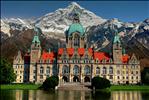

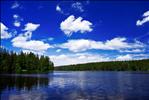
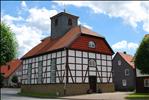
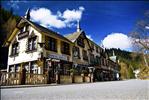
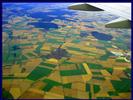
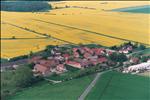
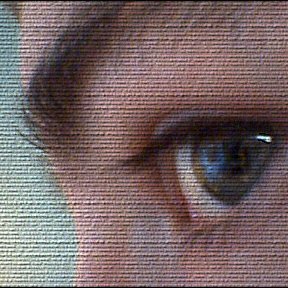
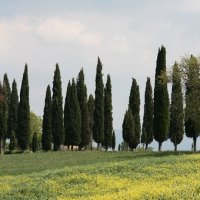






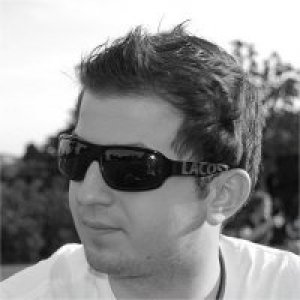
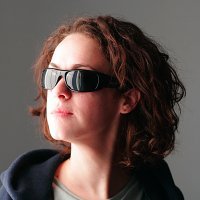



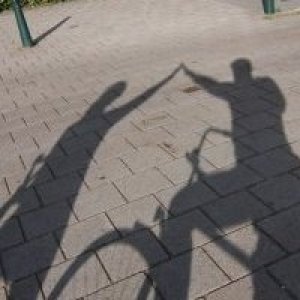
















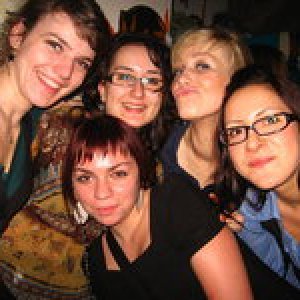


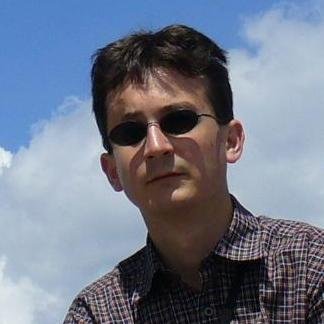



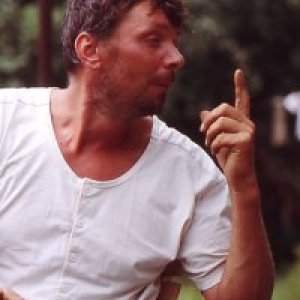


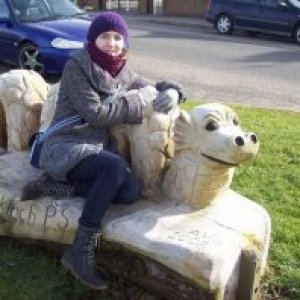


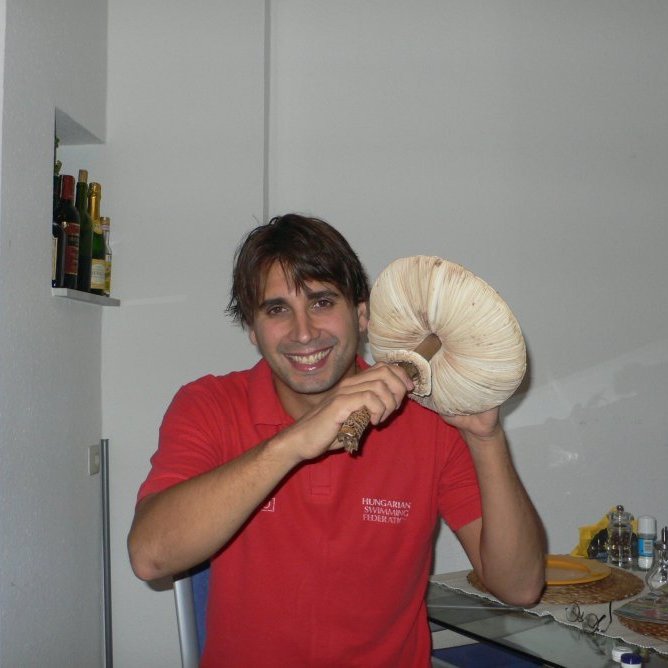
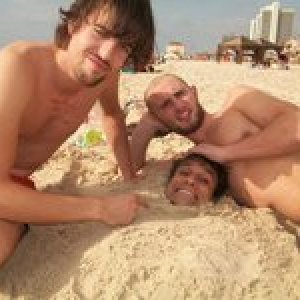


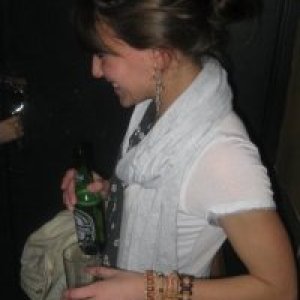


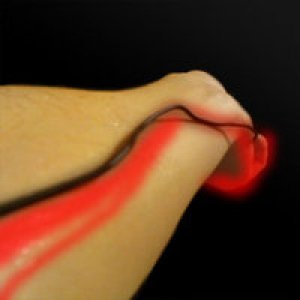


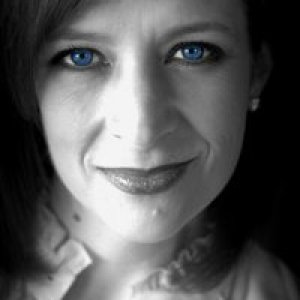
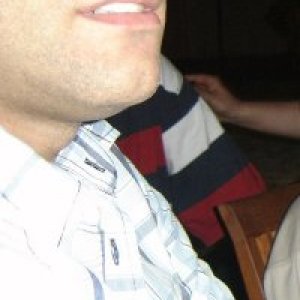




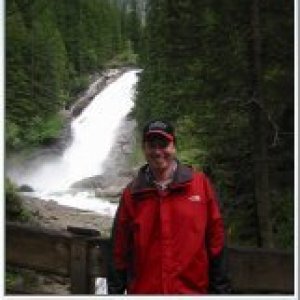

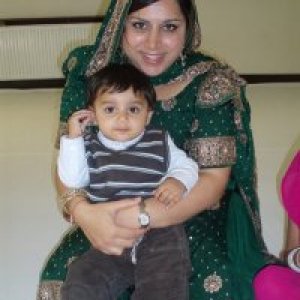




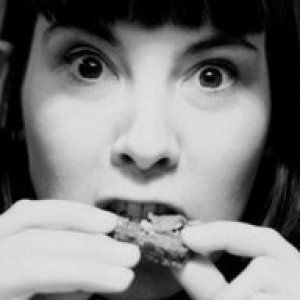







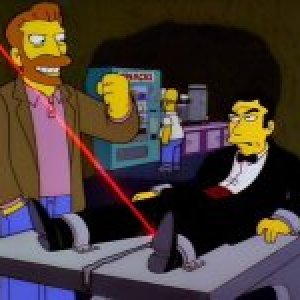

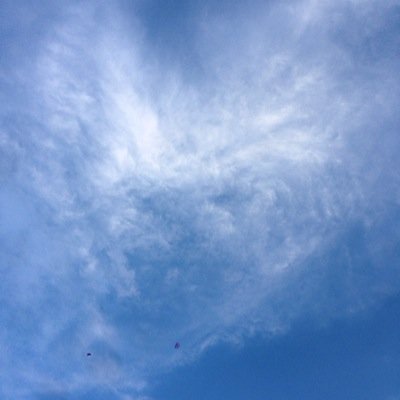
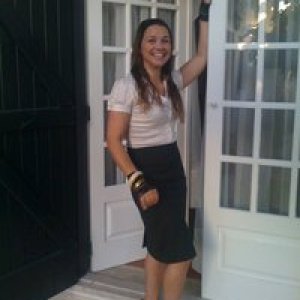
.jpg)





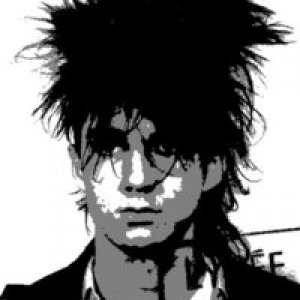

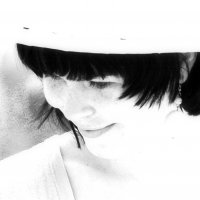

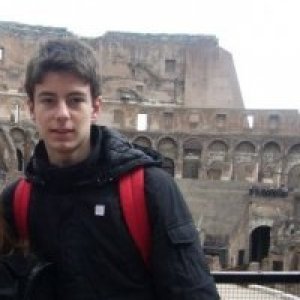
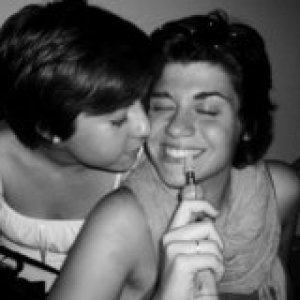

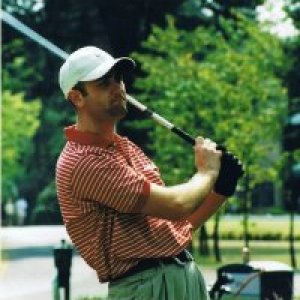

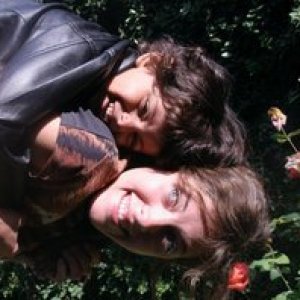

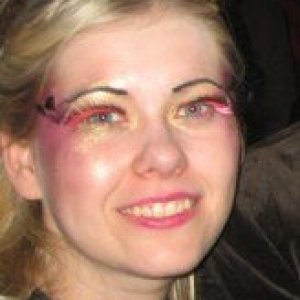
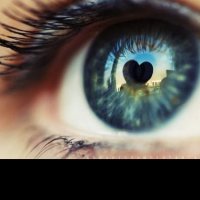






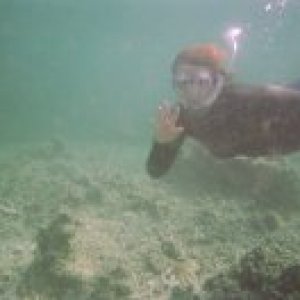





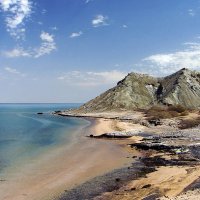

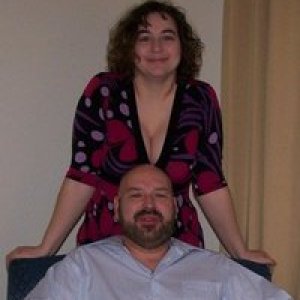

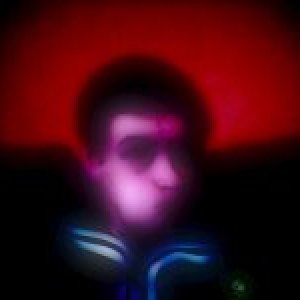

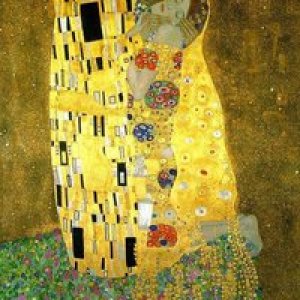
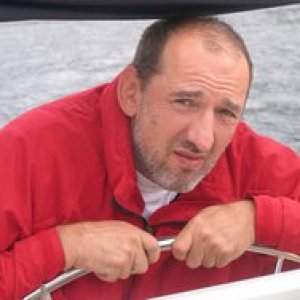


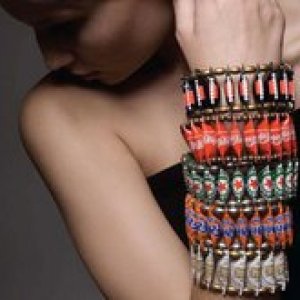
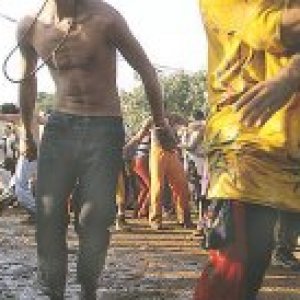


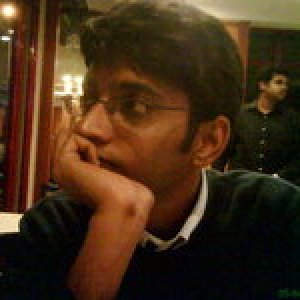
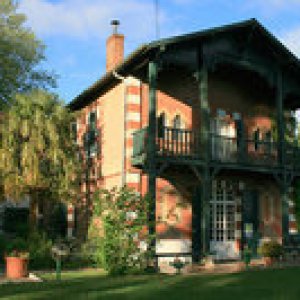





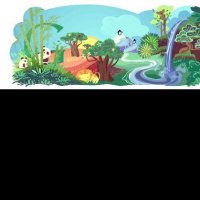
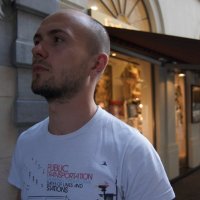




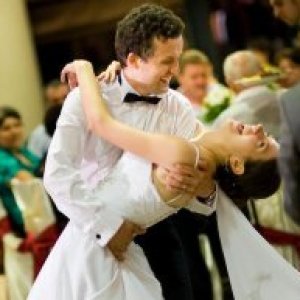
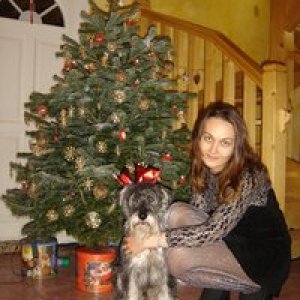






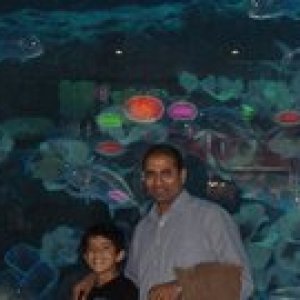


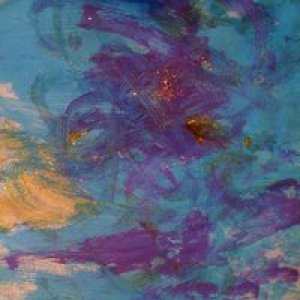
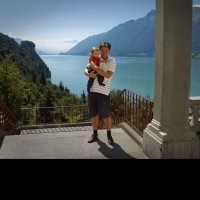


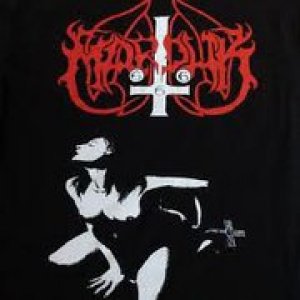

















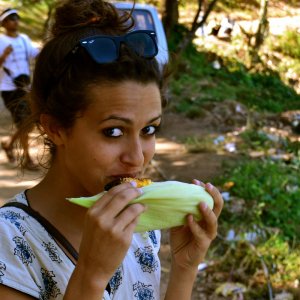


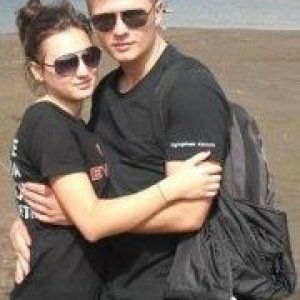
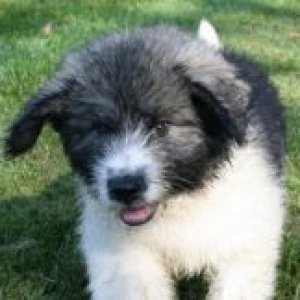







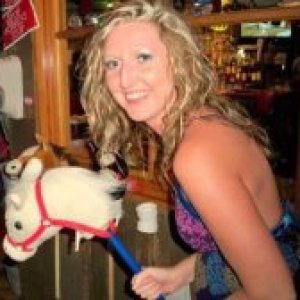




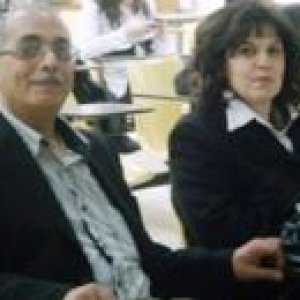
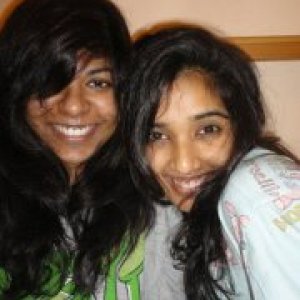





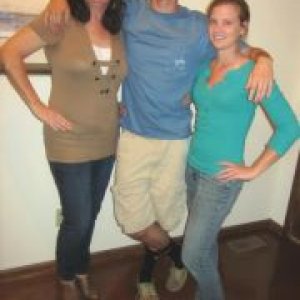

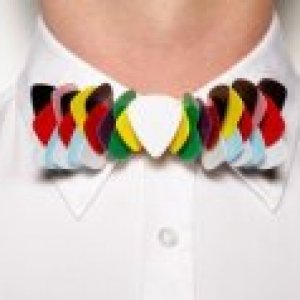



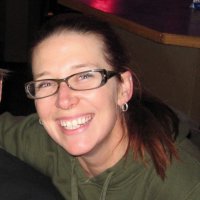









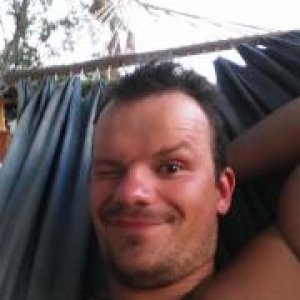
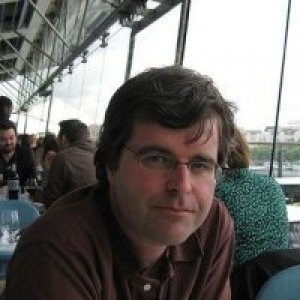













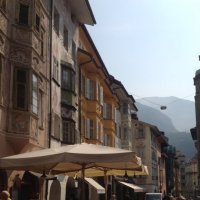






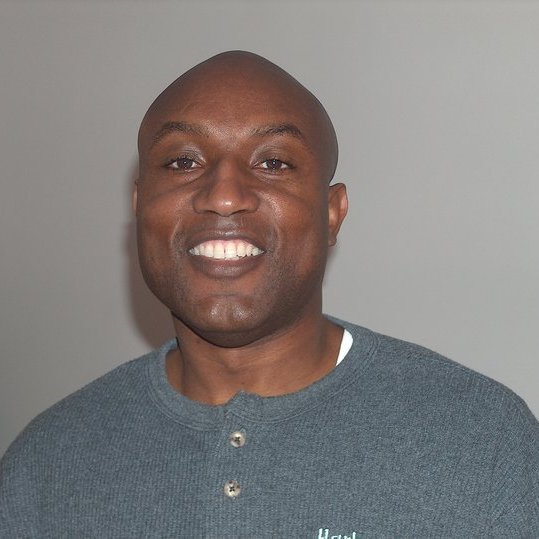














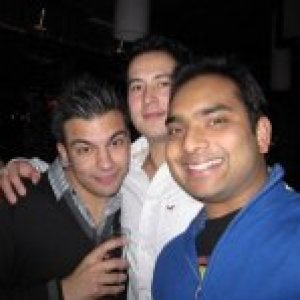








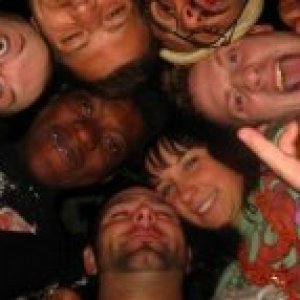
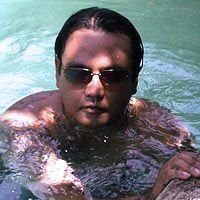

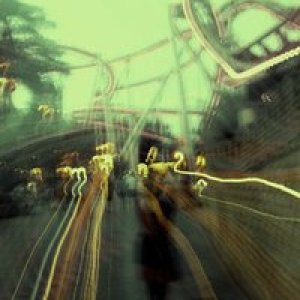

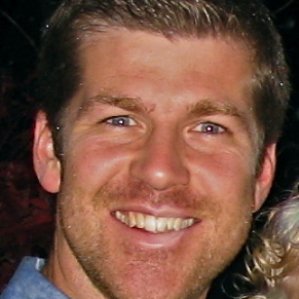









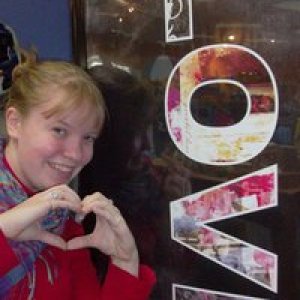



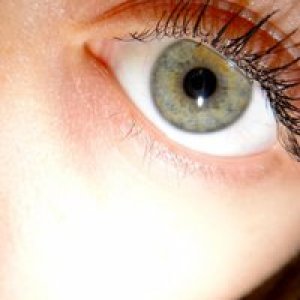











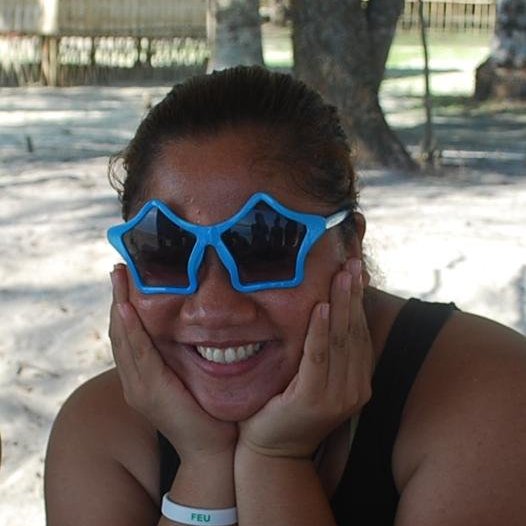


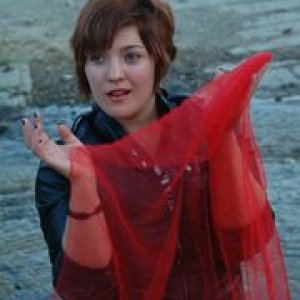

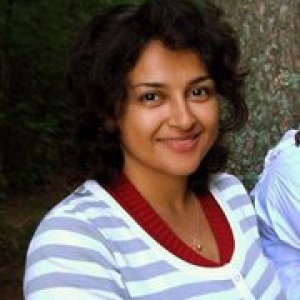



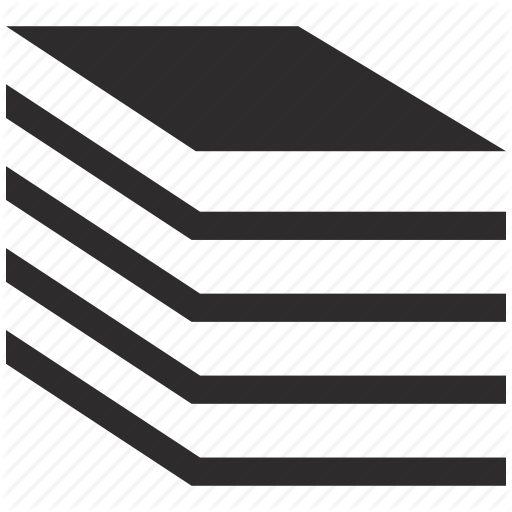


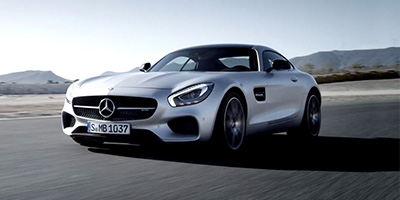



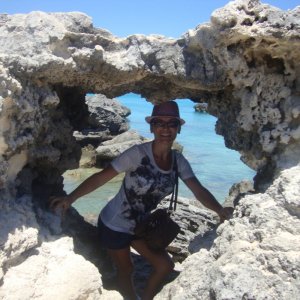


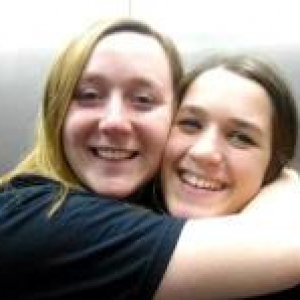

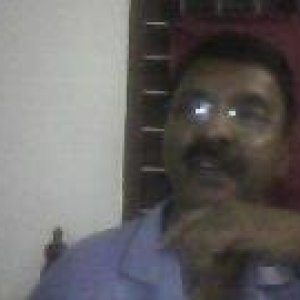



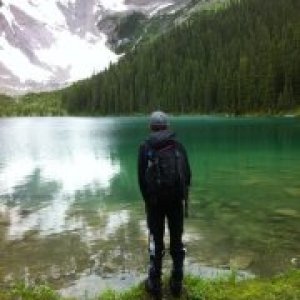






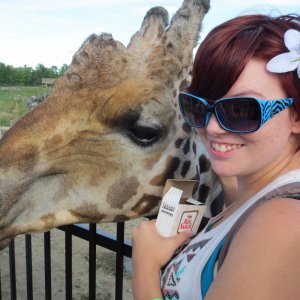


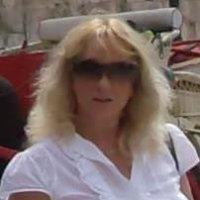
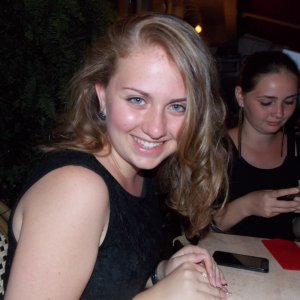
I liked
Bavaria, beer, versatility, medieval castles, half timbered houses, fast trainsI disliked
Nothing in particular in the cities I've seen so far.